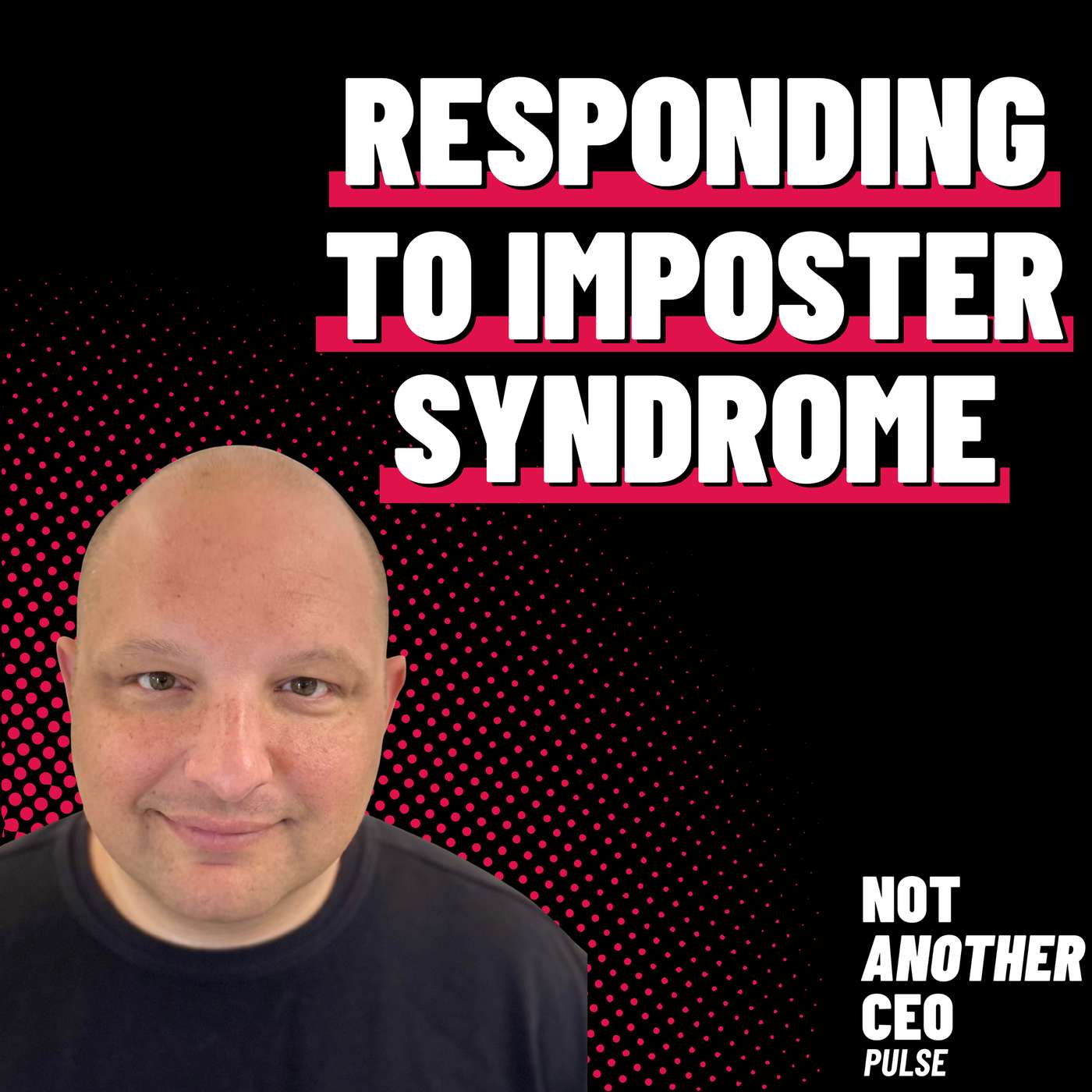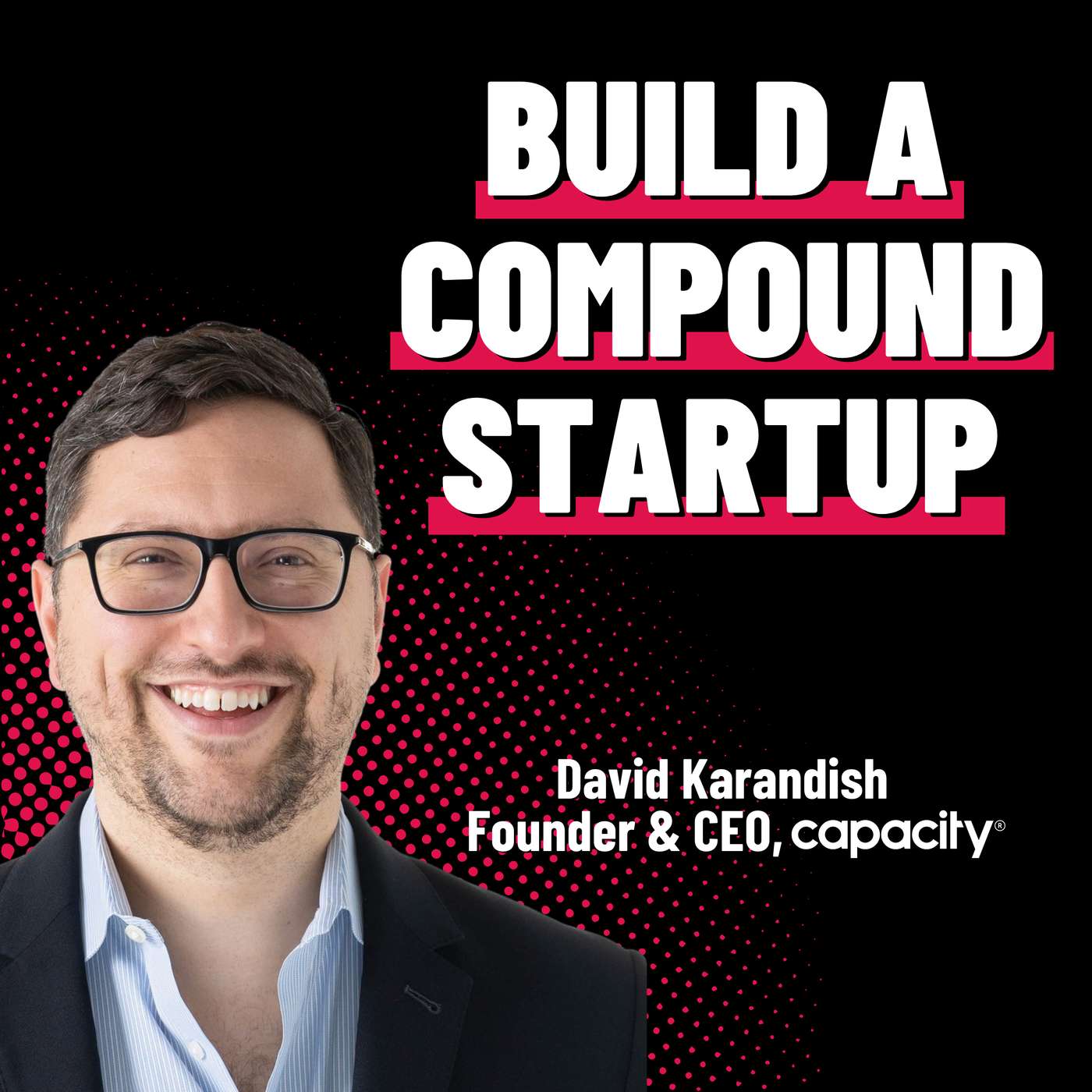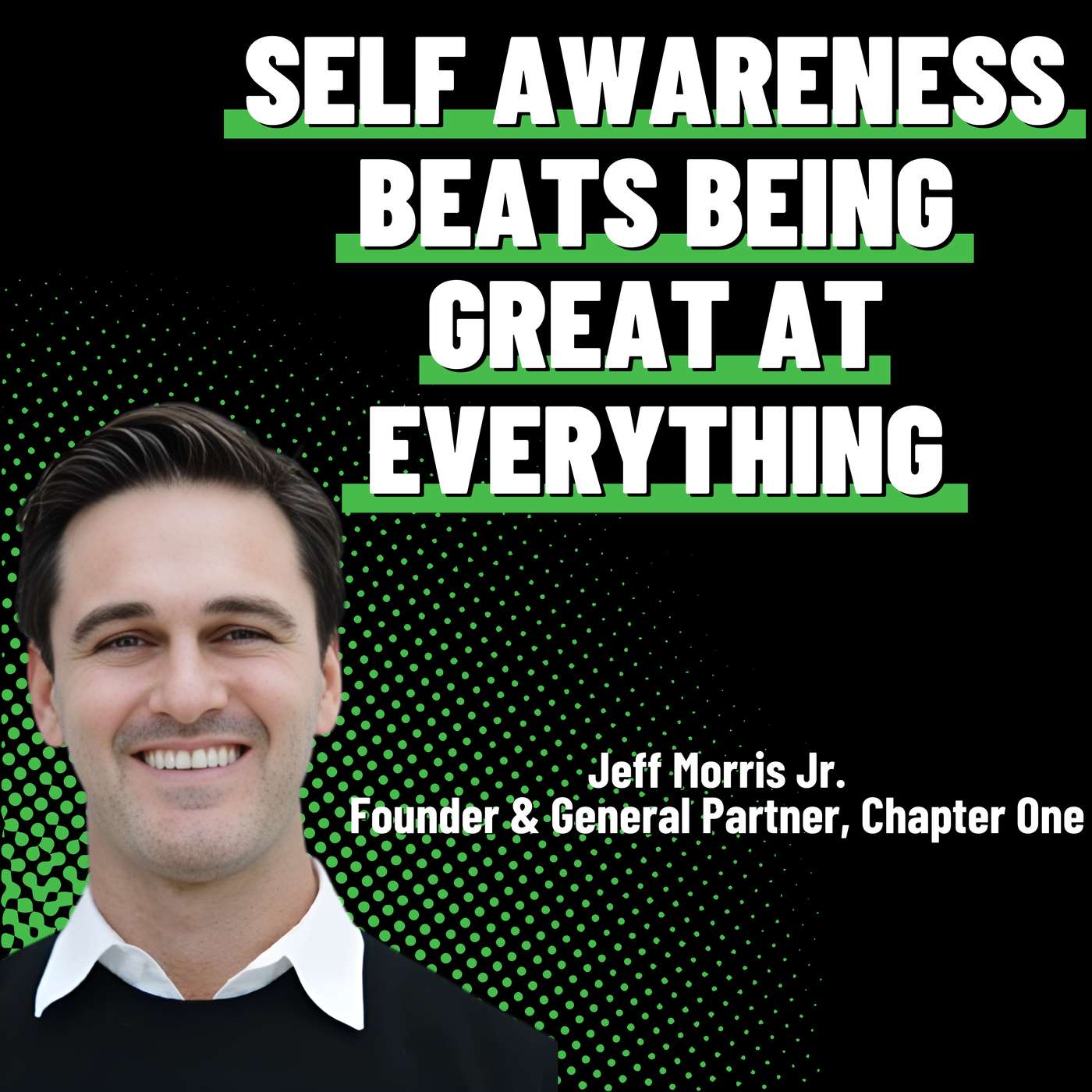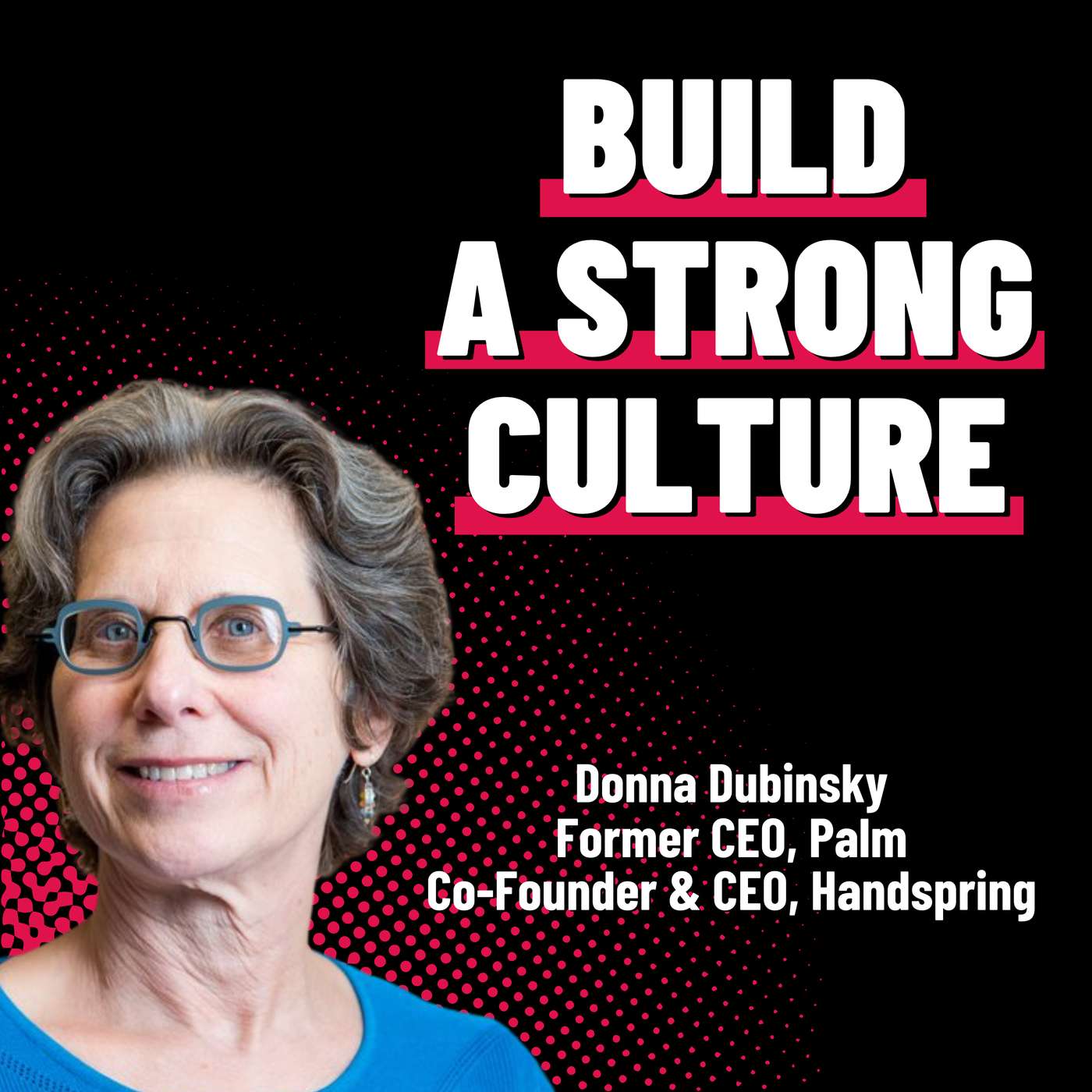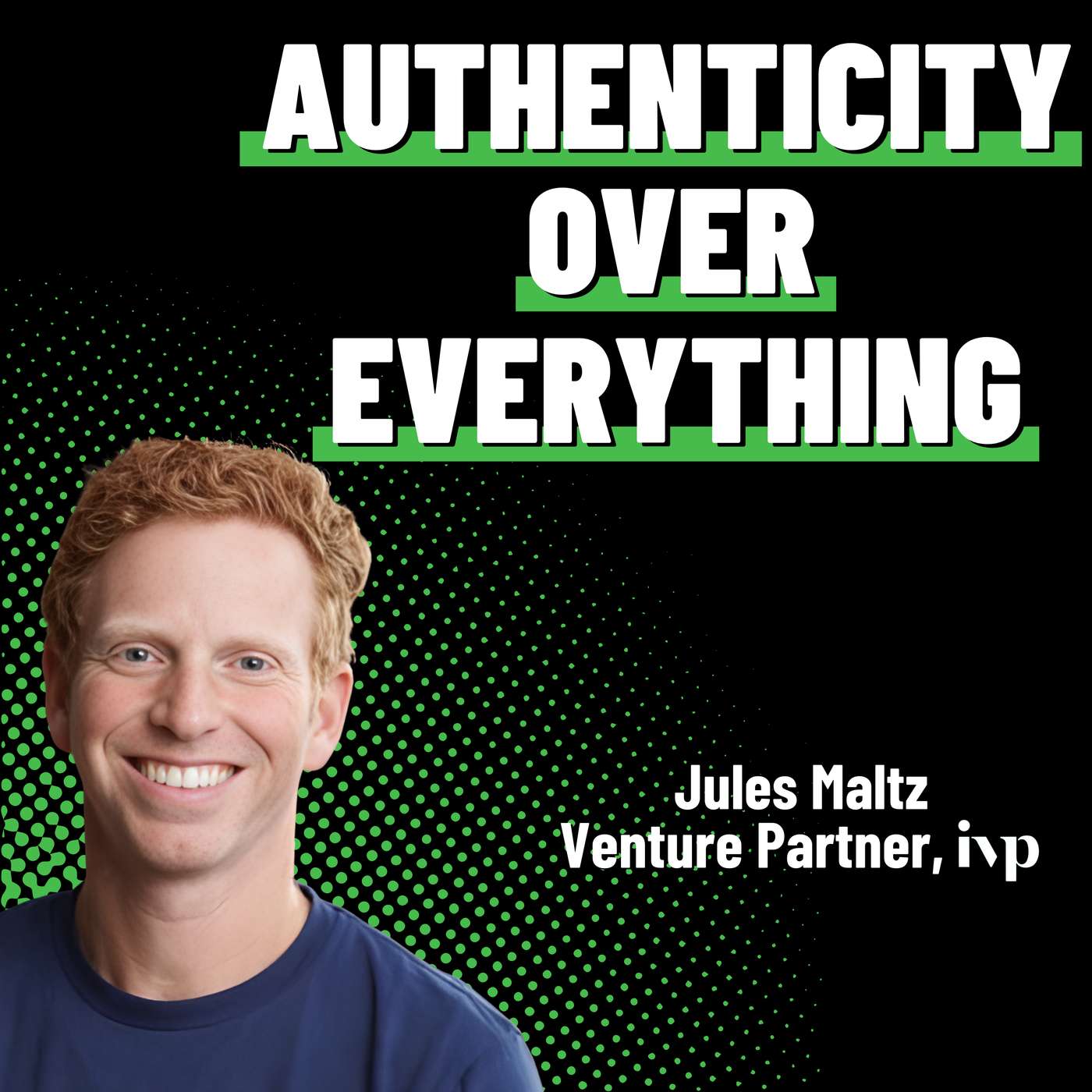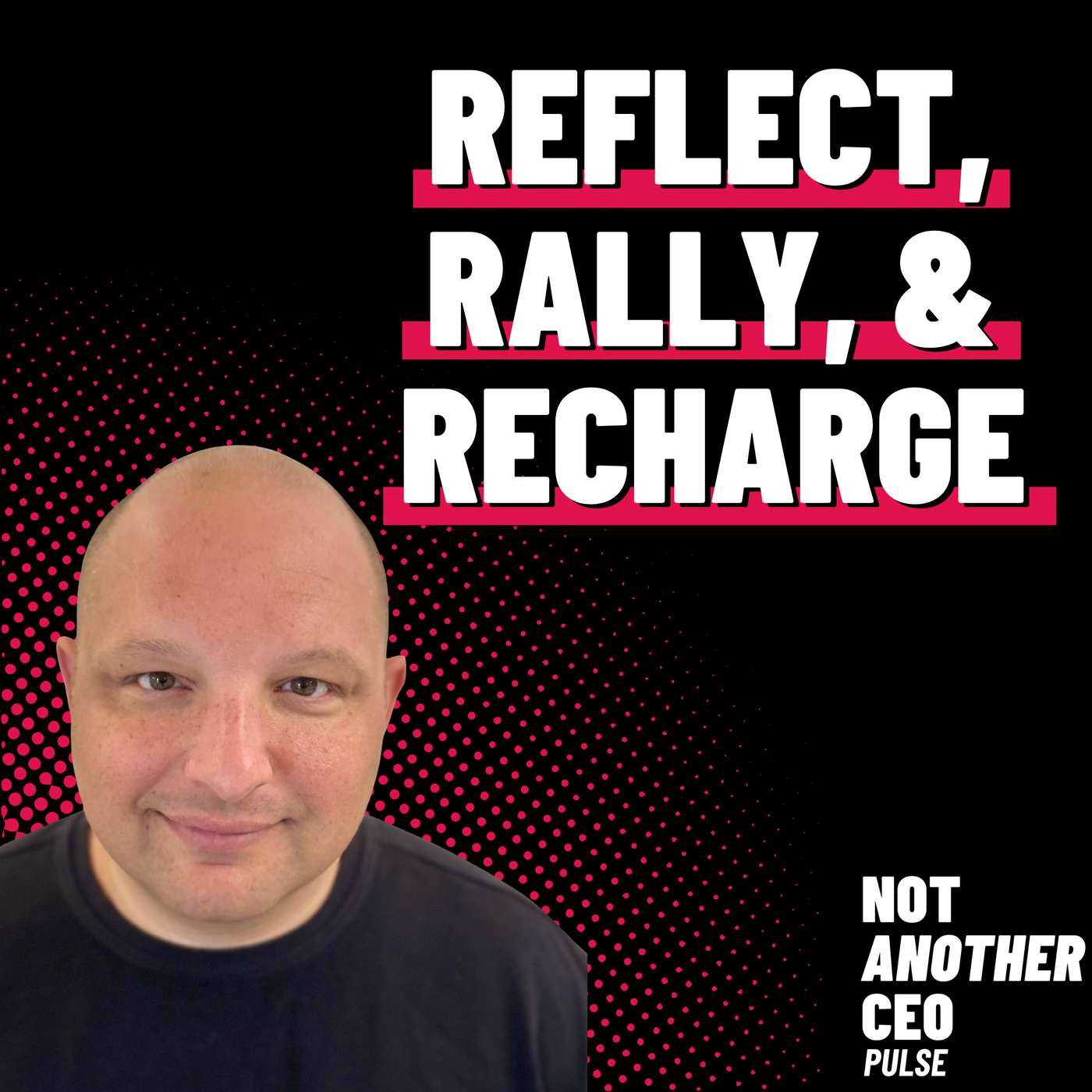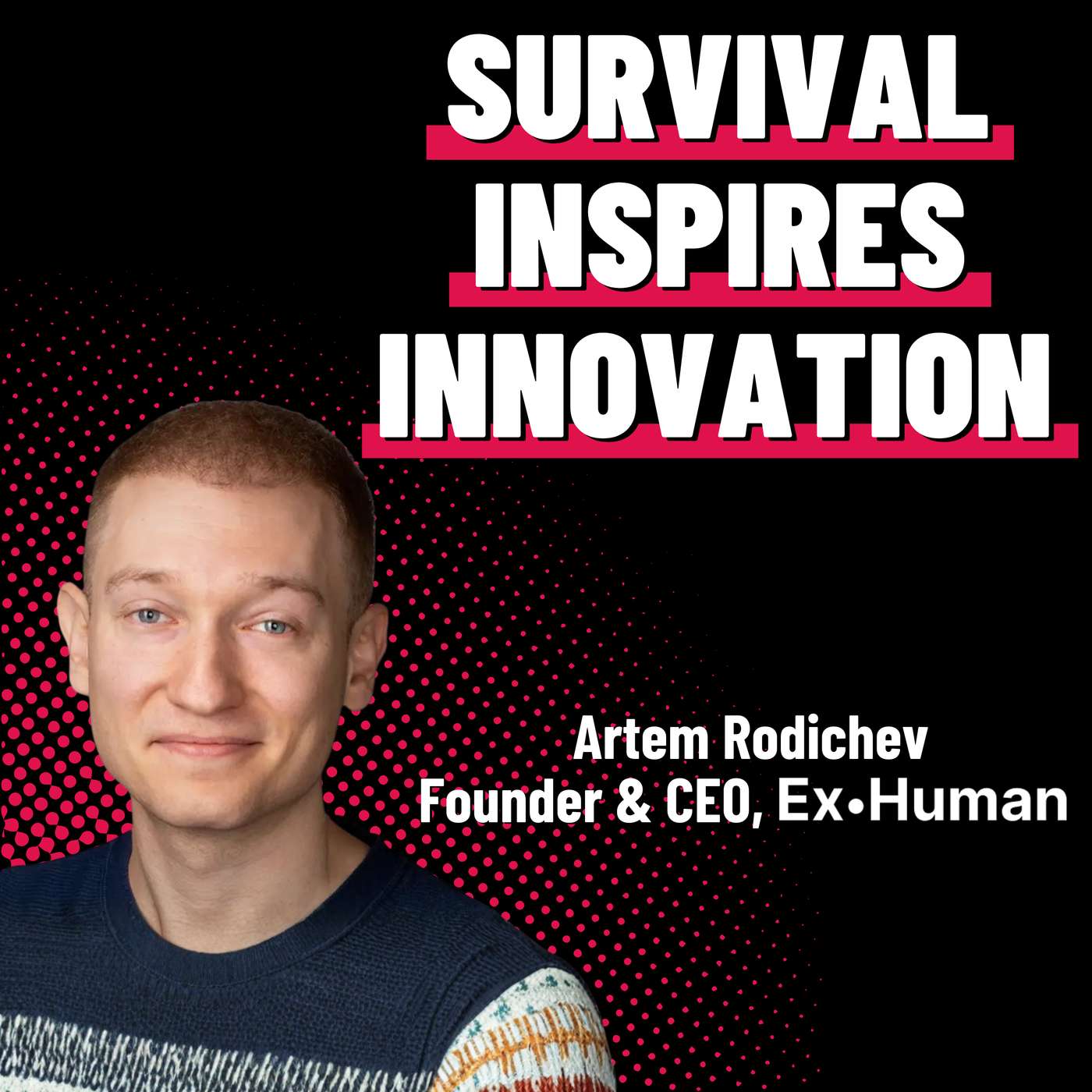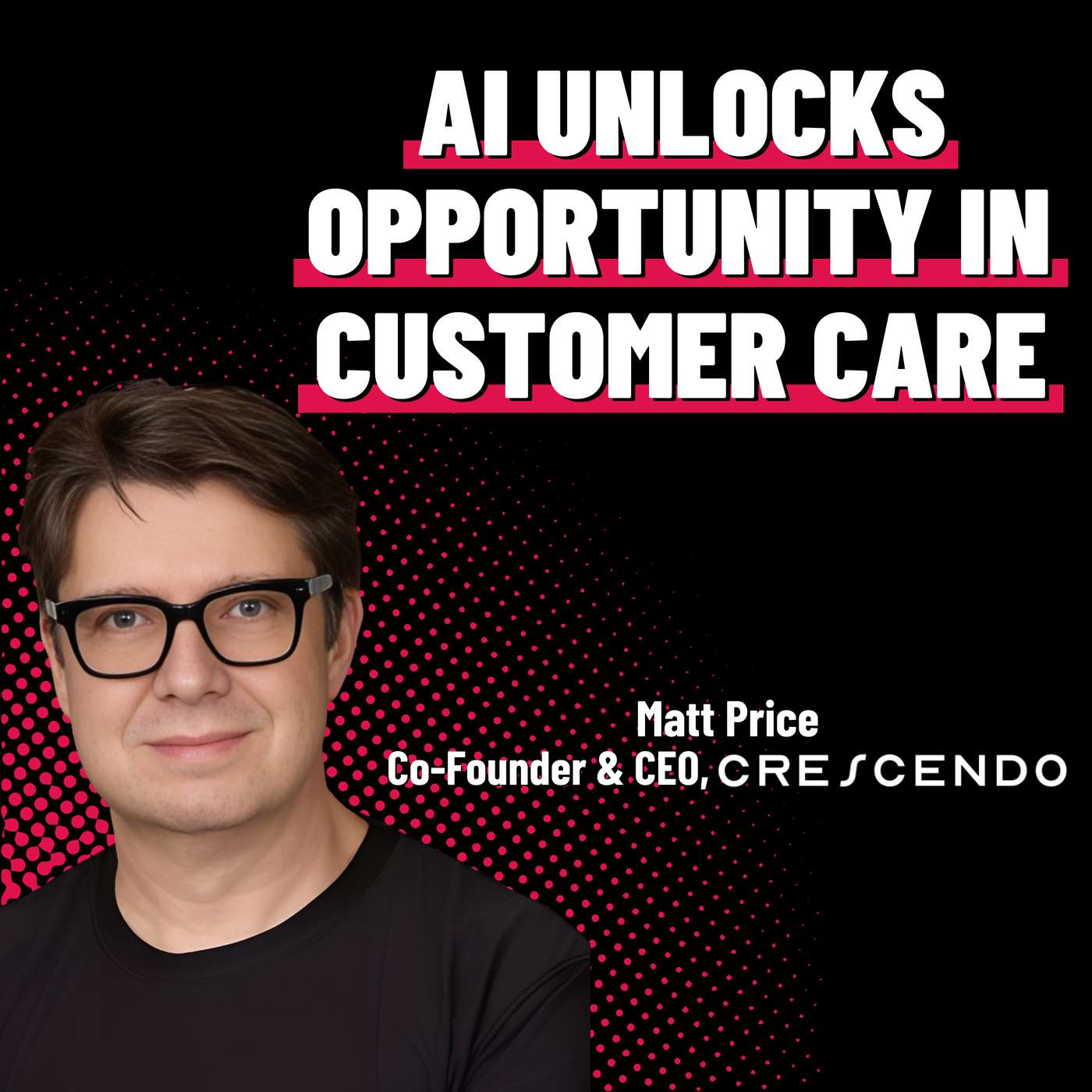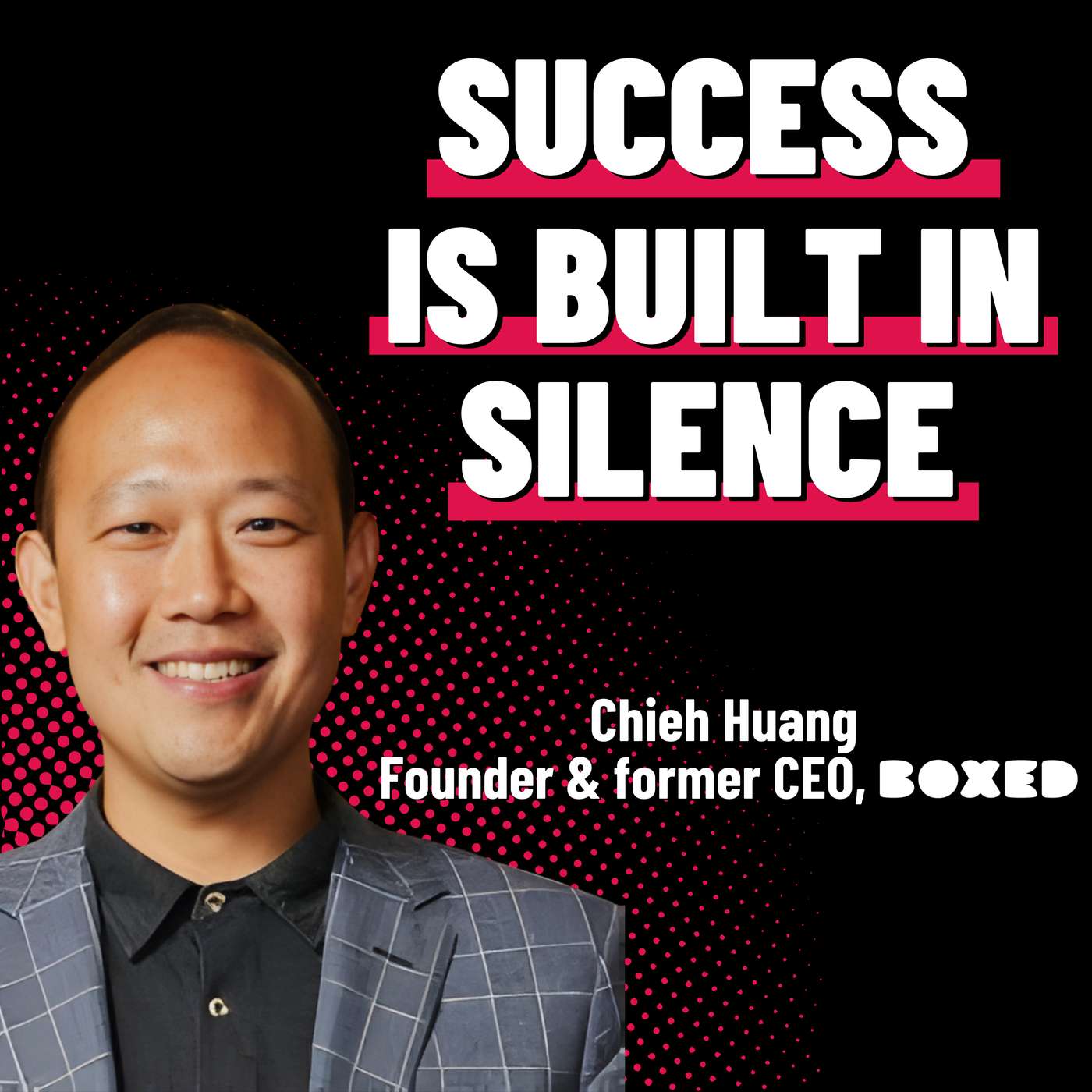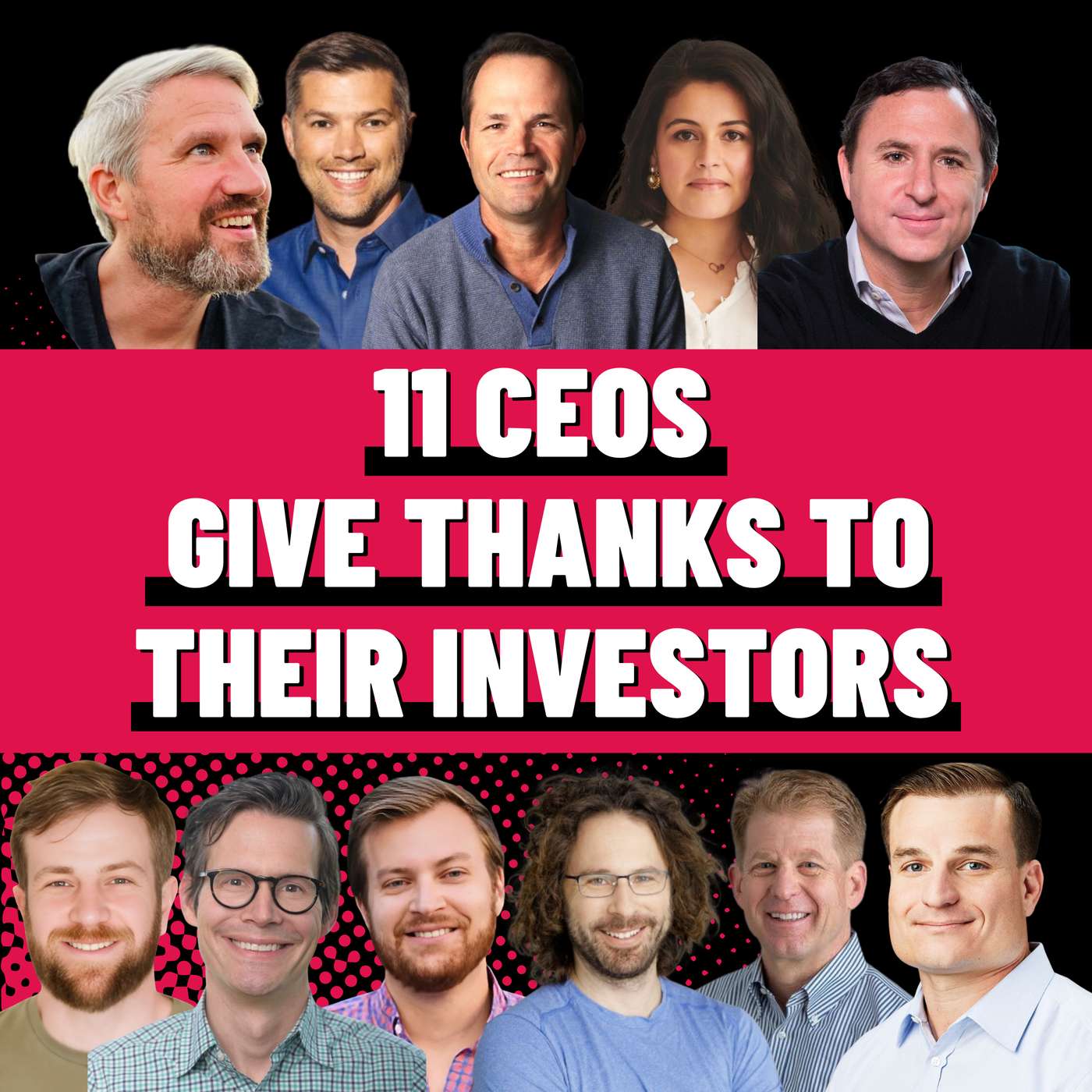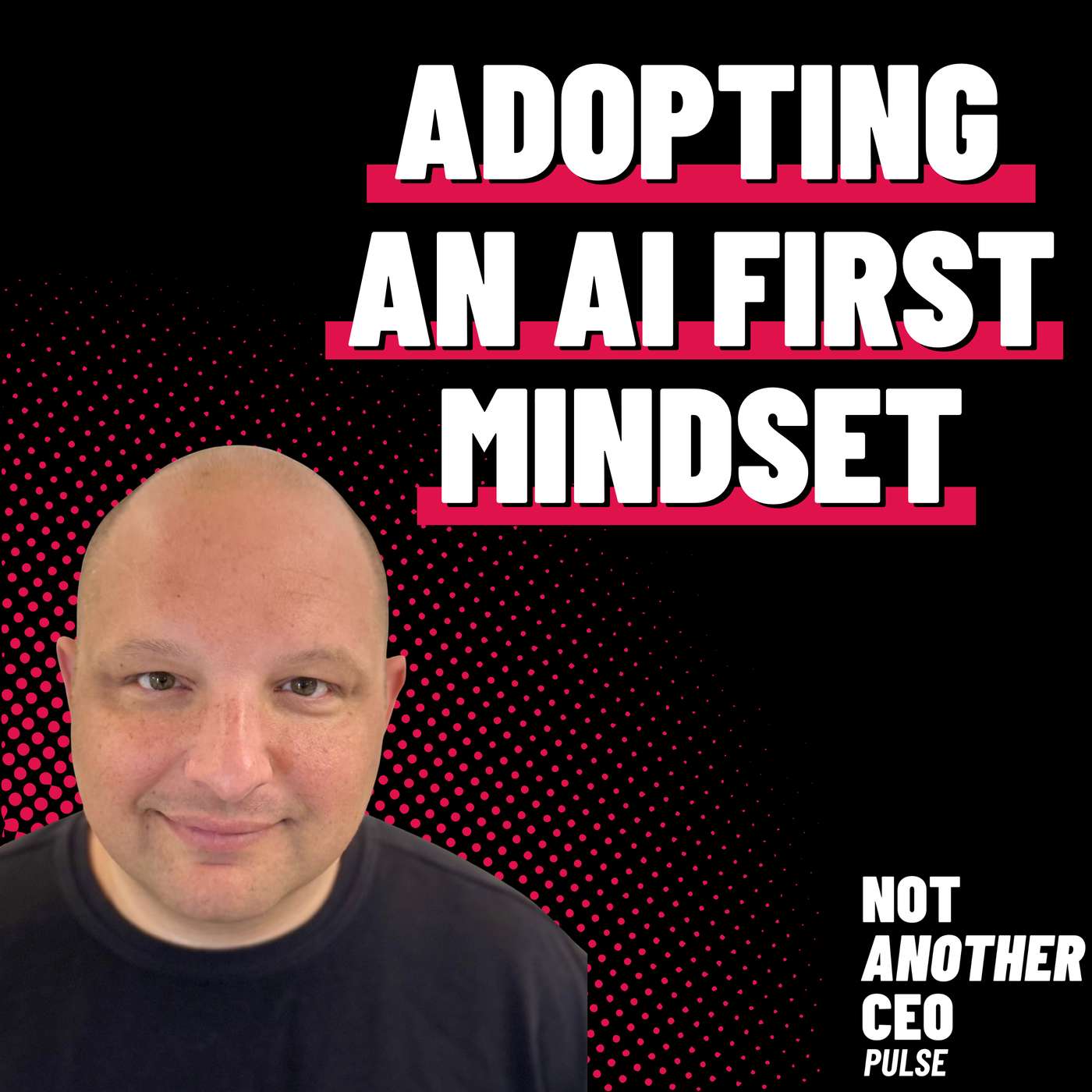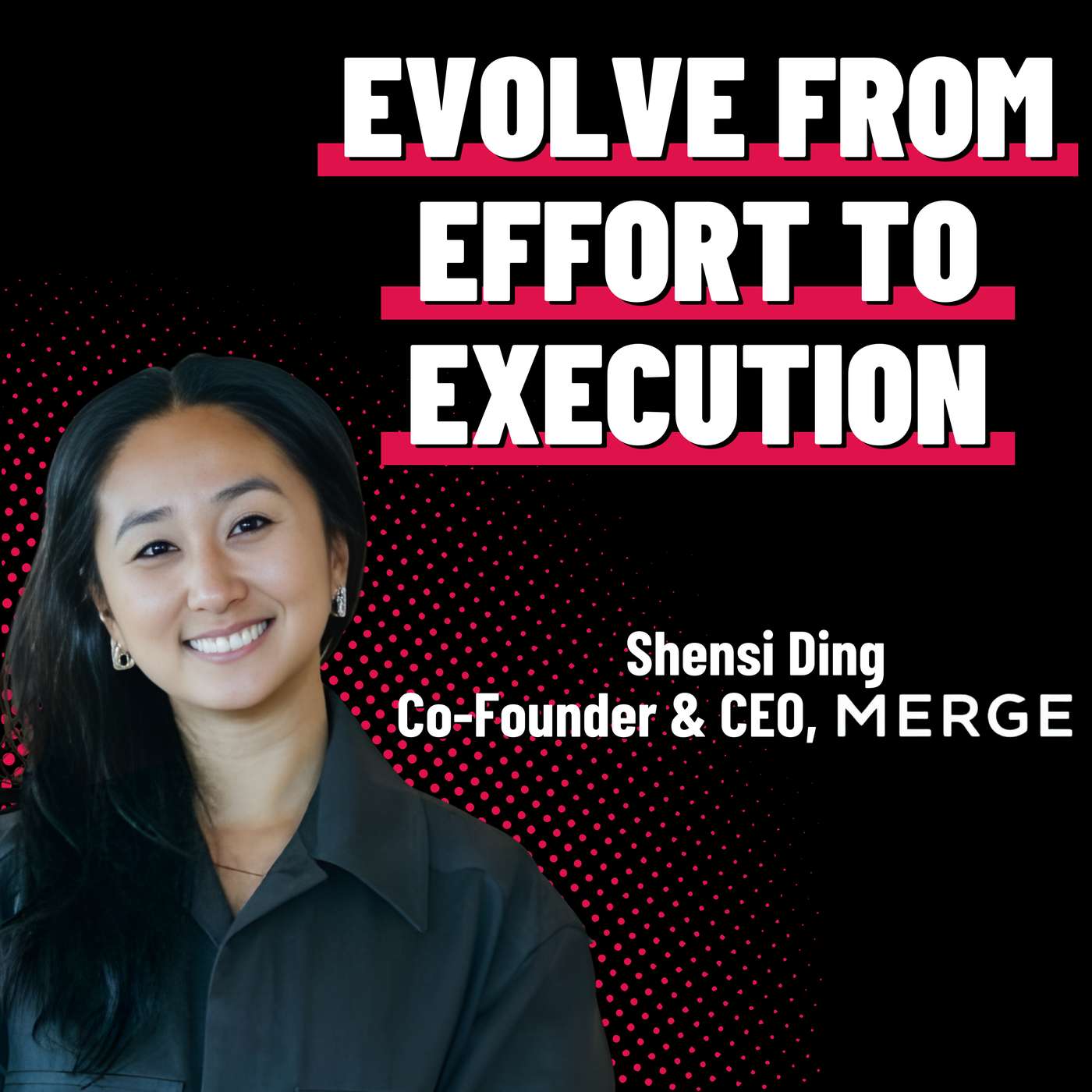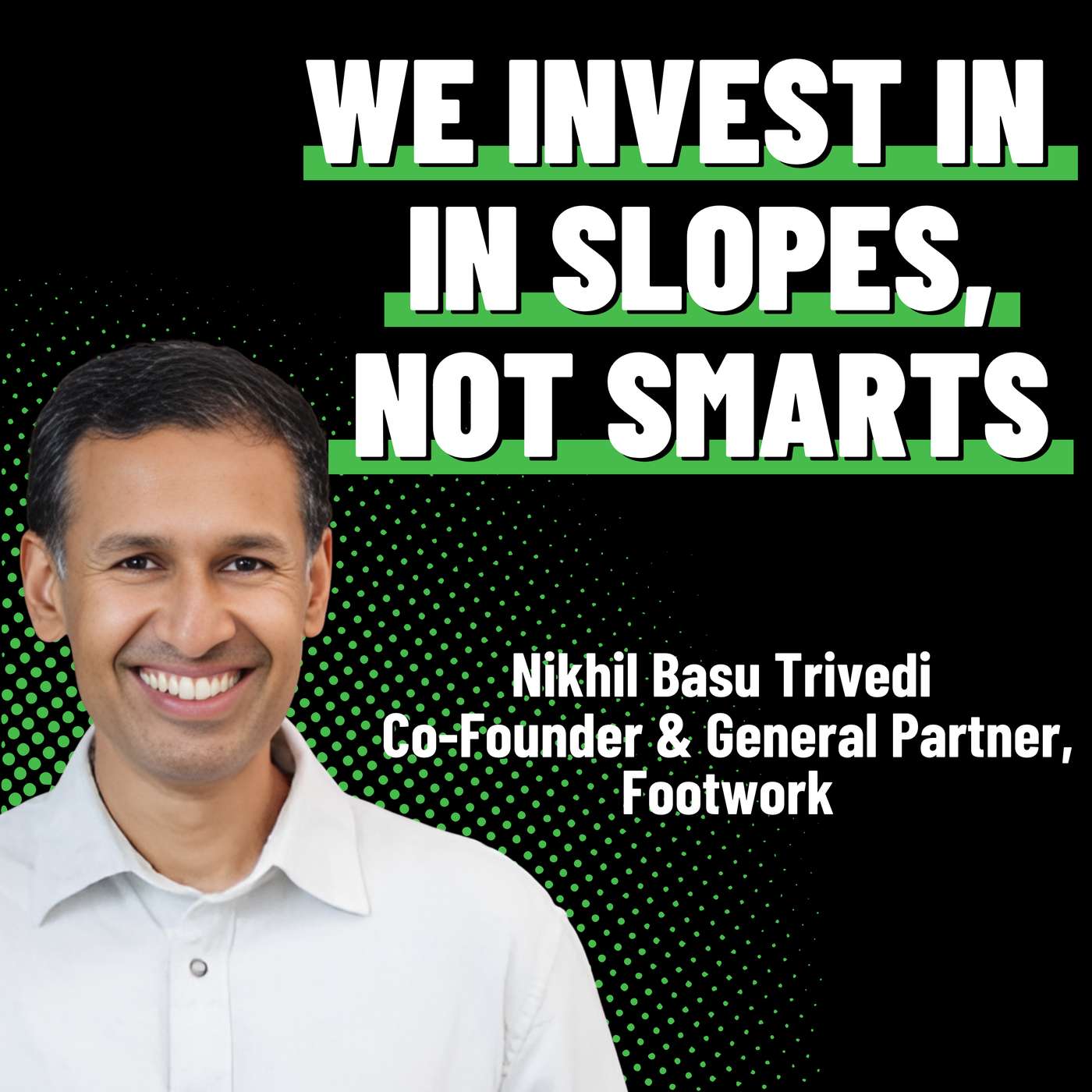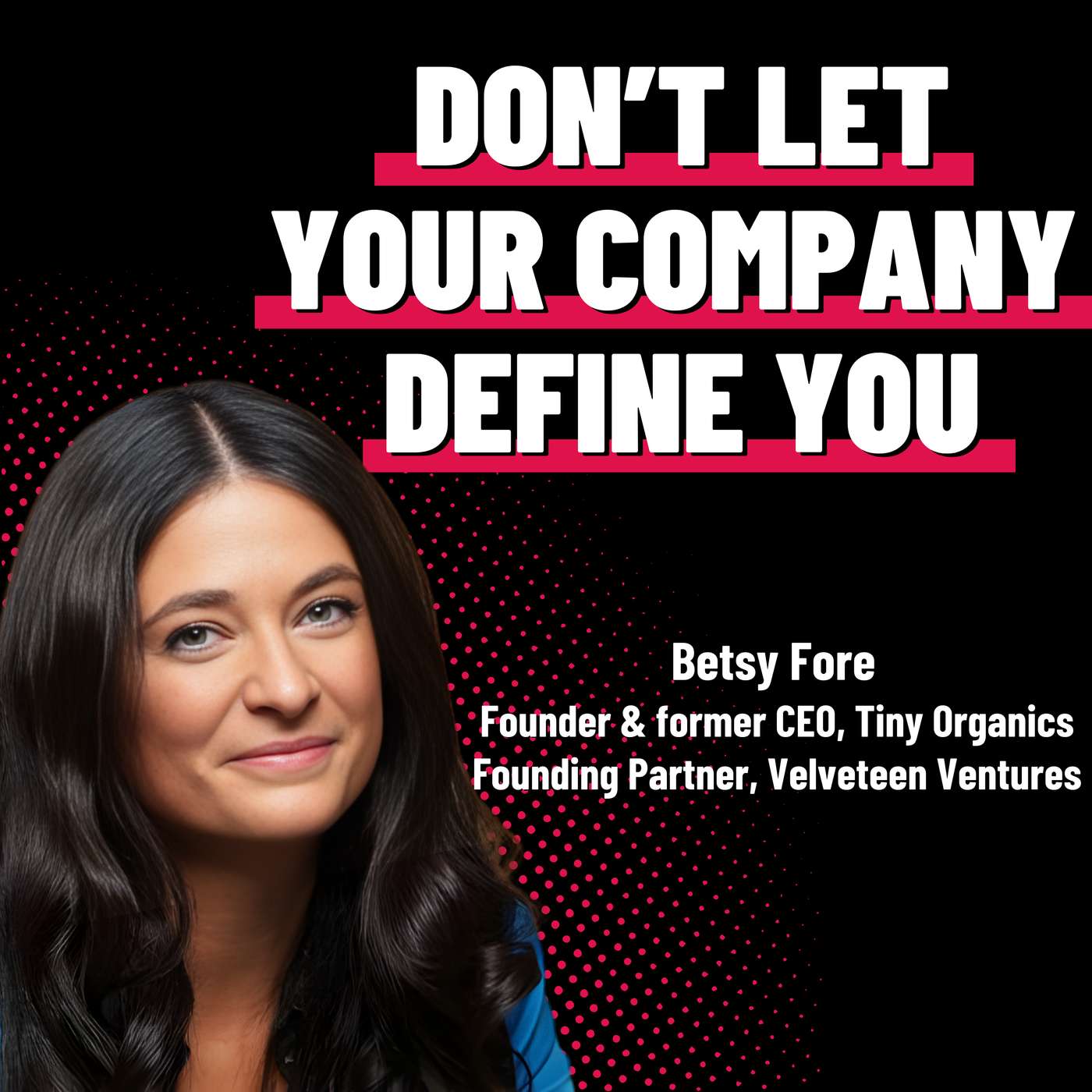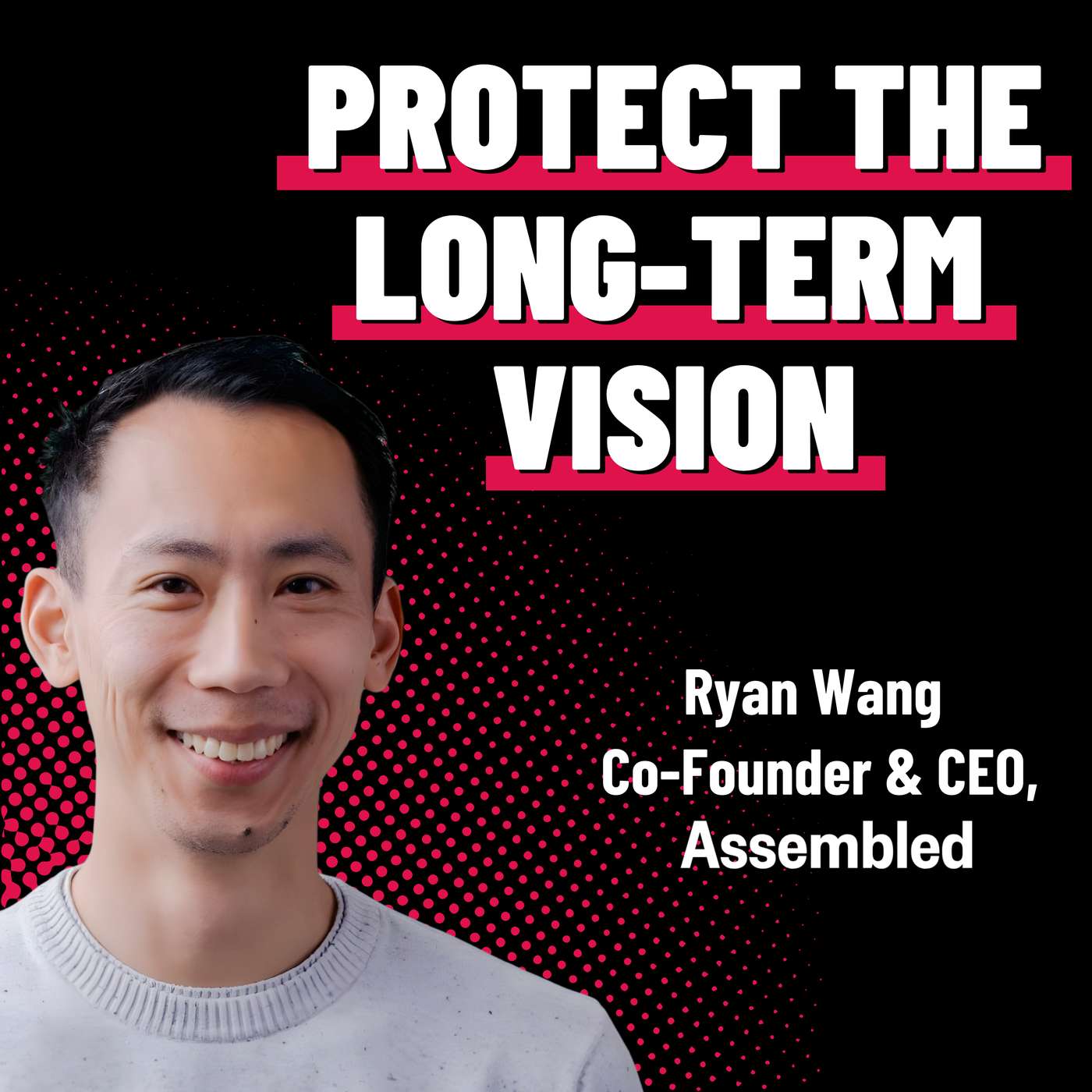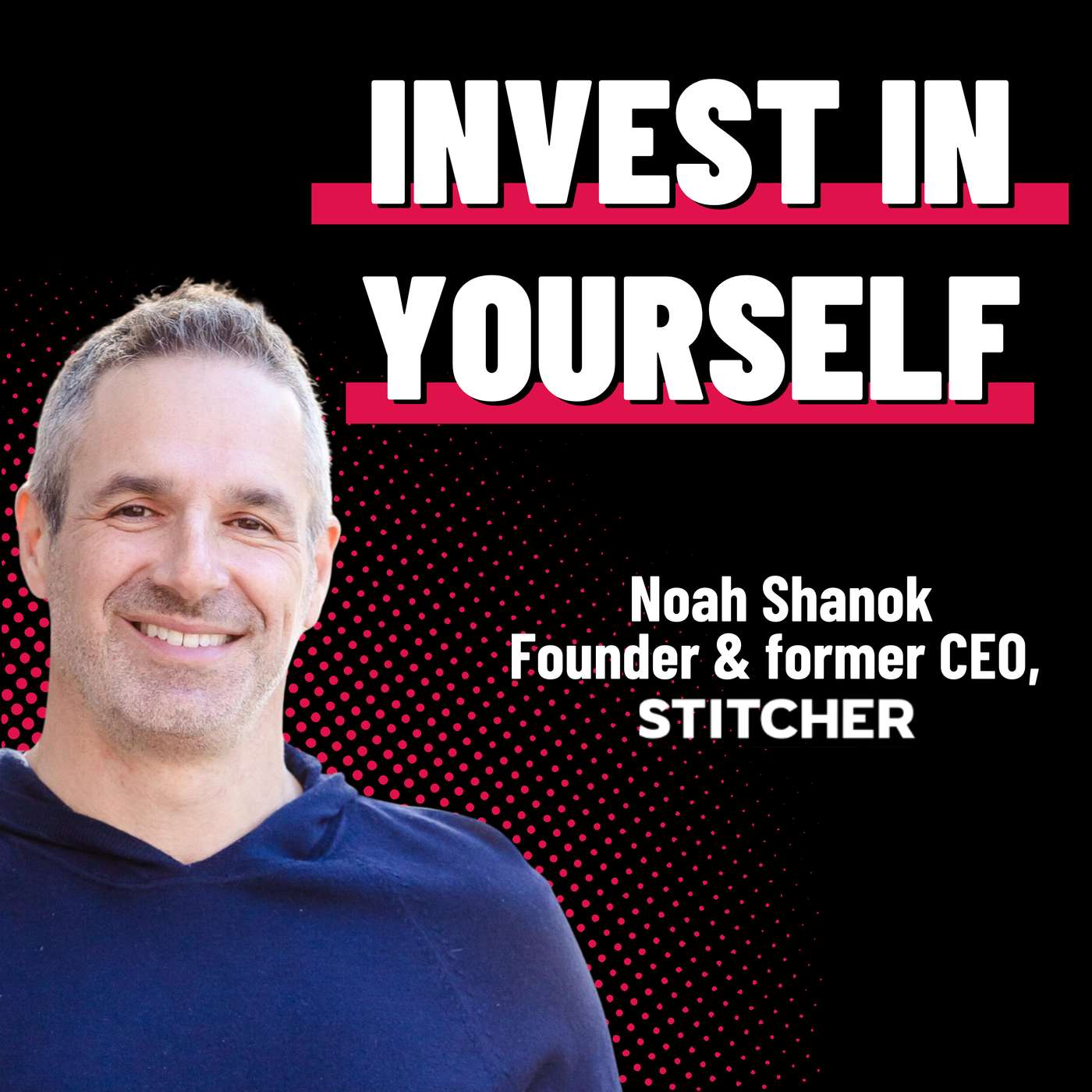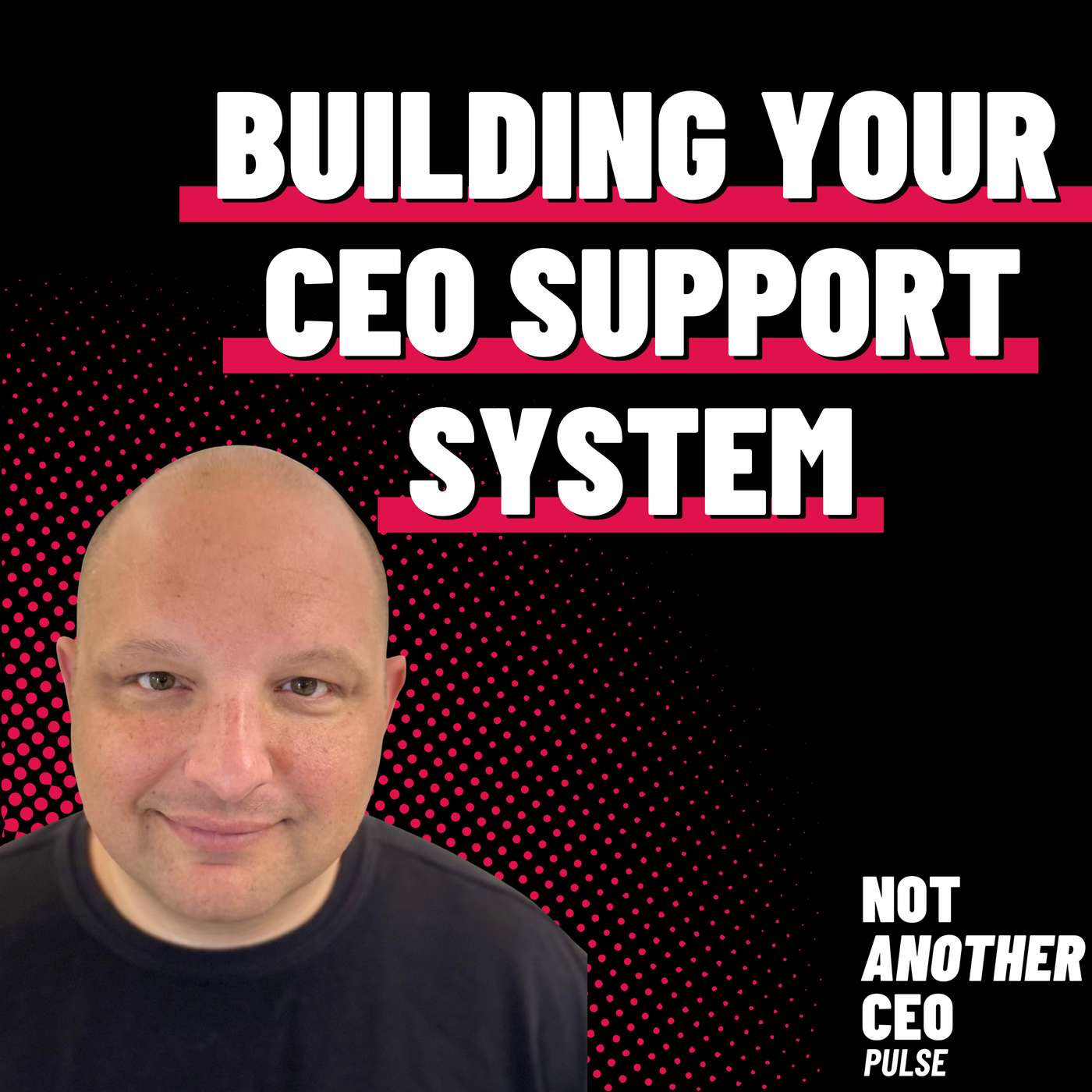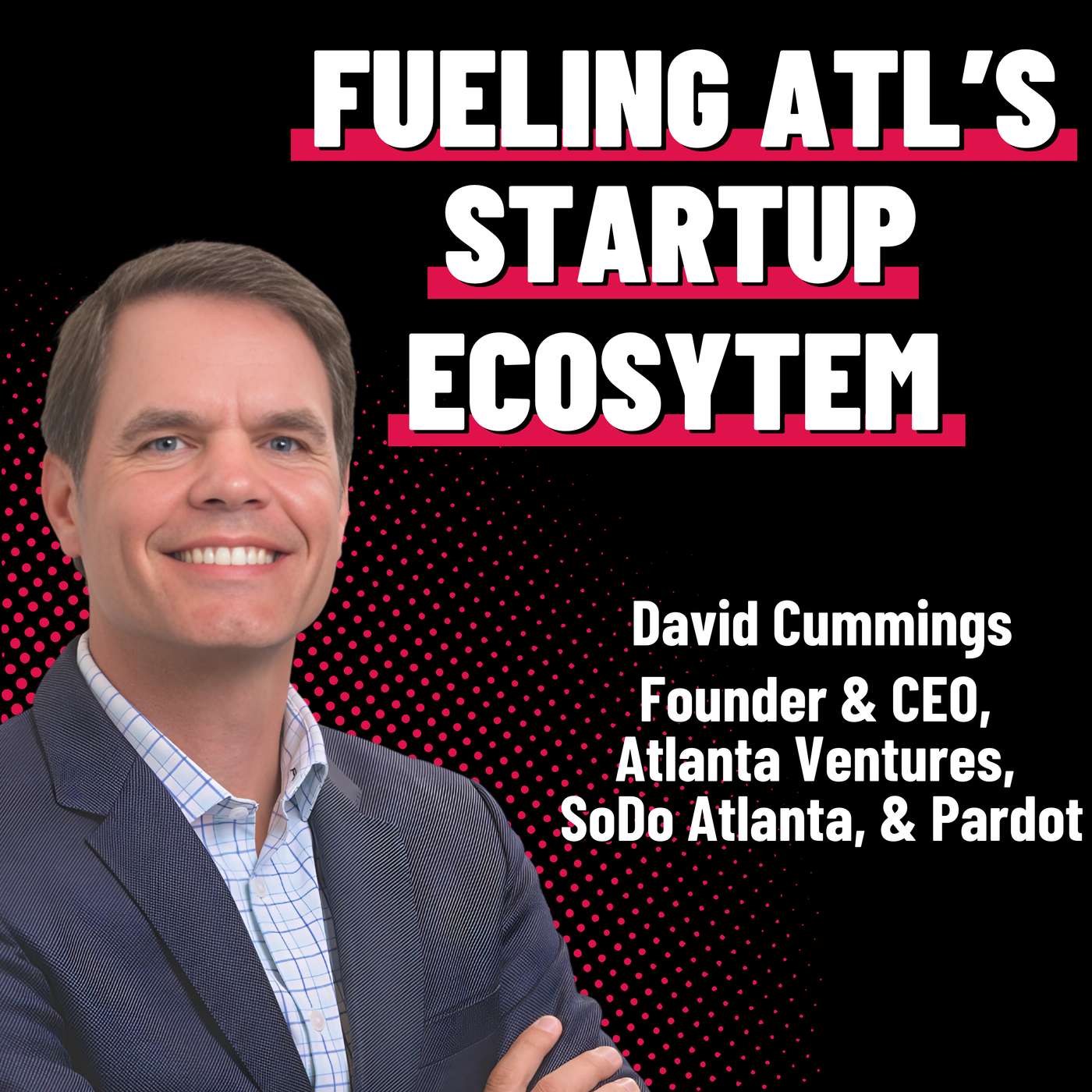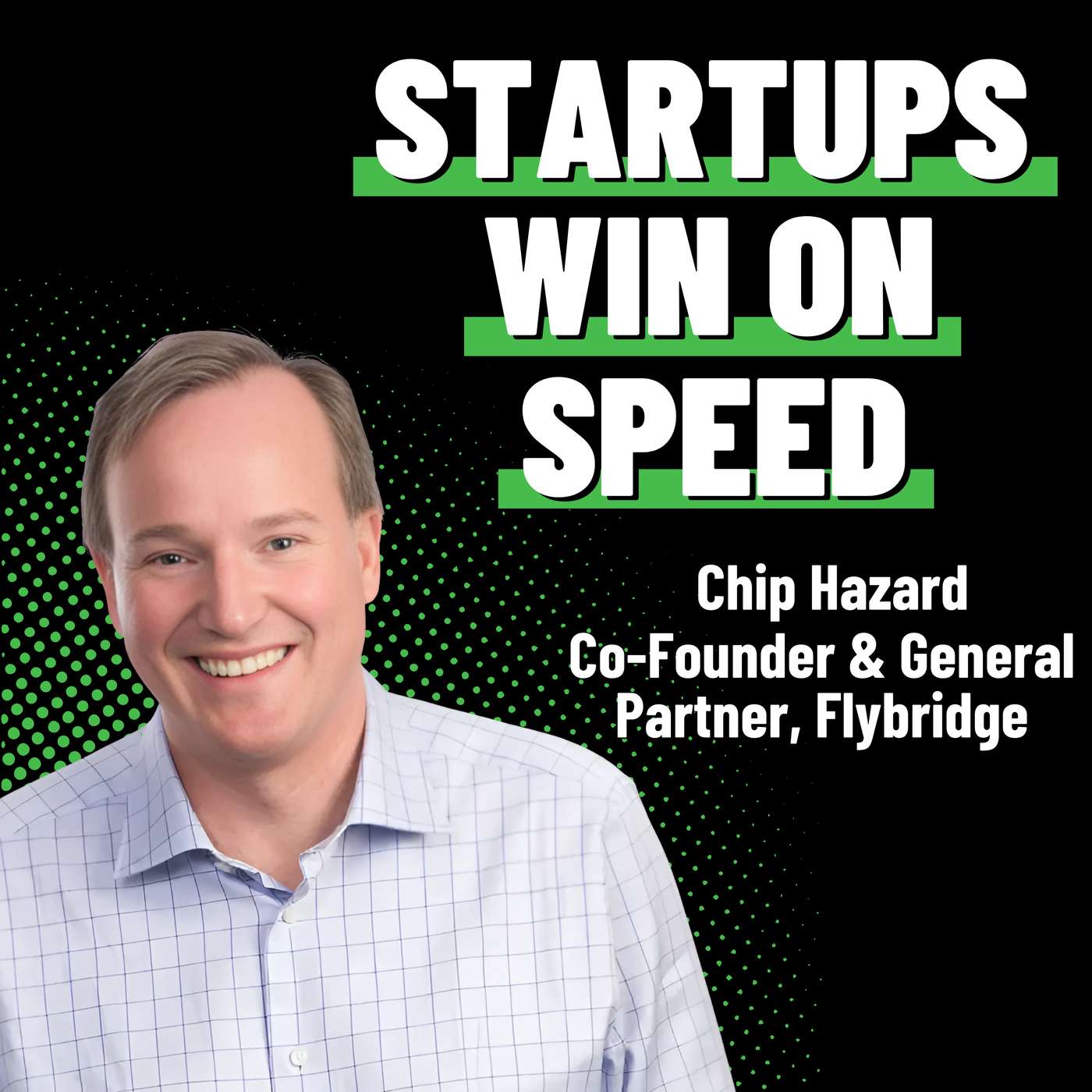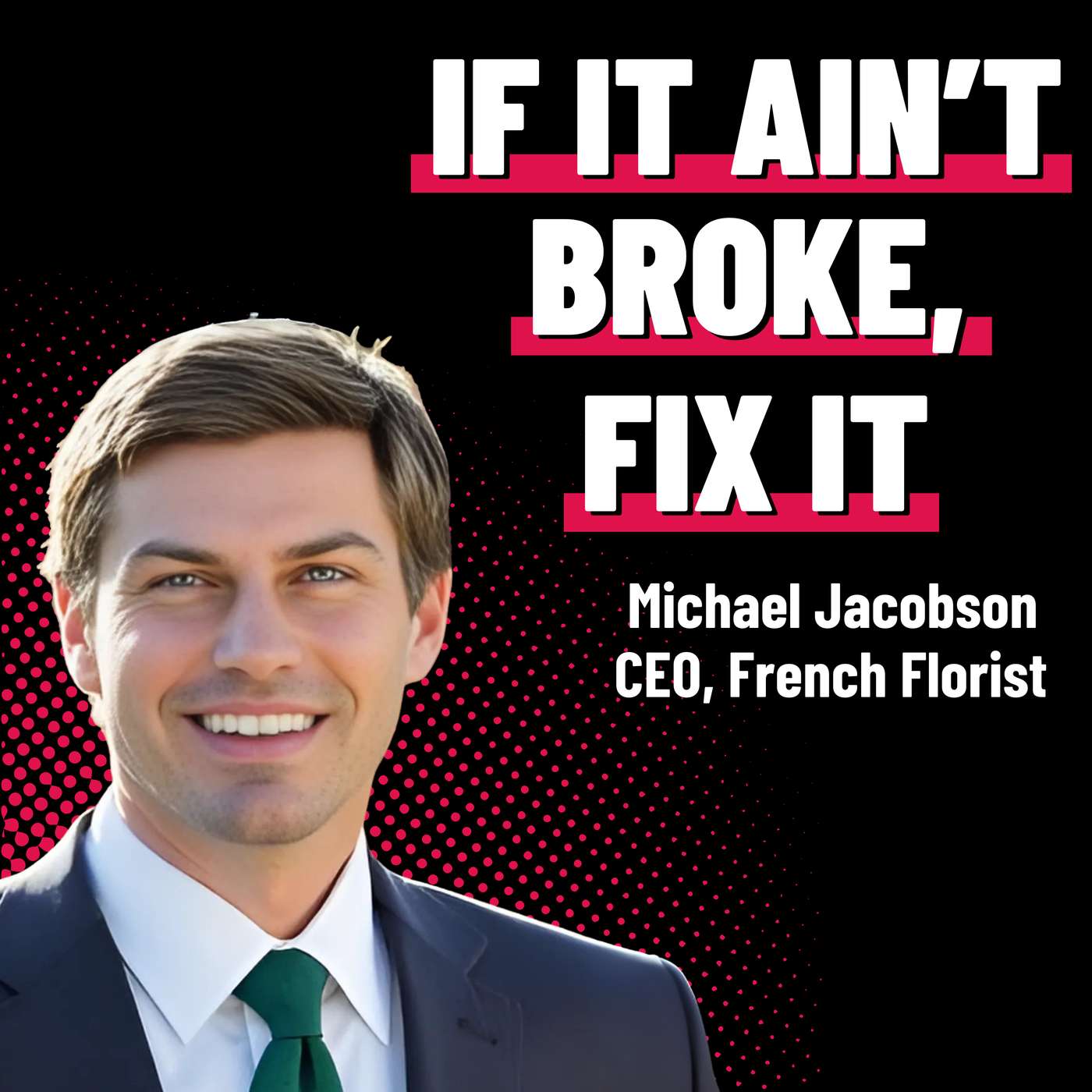Discover Not Another CEO Podcast
Not Another CEO Podcast

Not Another CEO Podcast
Author: Not Another CEO
Subscribed: 4Played: 138Subscribe
Share
© 2024
Description
Our mission is to bend the curve for Founders and CEOs.
At Not Another CEO, we know there’s no formula for running a business. Leadership is forged through unique journeys, real challenges, and hard lessons. Our exclusive content showcases unfiltered stories and practical guidance from those who’ve crawled through the trenches. Our platform offers the largest library of CEO insights and how-to guides, sourced directly from a diverse community of leaders.
Find our full video library, detailed playbooks, deep dives, and lessons learned on our Substack here ➡️ https://notanotherceo.substack.com/
At Not Another CEO, we know there’s no formula for running a business. Leadership is forged through unique journeys, real challenges, and hard lessons. Our exclusive content showcases unfiltered stories and practical guidance from those who’ve crawled through the trenches. Our platform offers the largest library of CEO insights and how-to guides, sourced directly from a diverse community of leaders.
Find our full video library, detailed playbooks, deep dives, and lessons learned on our Substack here ➡️ https://notanotherceo.substack.com/
86 Episodes
Reverse
Can imposter syndrome drive you to succeed? In this solo episode of Not Another CEO Podcast, David explores his personal experiences with imposter syndrome and shares valuable insights gathered from countless conversations with leaders who have faced similar challenges.Ways to Tune In:Substack: https://notanotherceo.substack.com/Spotify: https://open.spotify.com/show/1NQ9oAB2XKlgWeL8iEQXg0 Apple Podcasts: https://podcasts.apple.com/us/podcast/not-another-ceo-podcast/id1751581707 YouTube: https://www.youtube.com/@NotAnotherCEOPodcast Transistor: https://podcast.notanotherceo.com/ #NotAnotherCEO #BusinessSuccess #FebruaryCEOPulseChapters:00:00 Intro00:51 Personal Experiences with Imposter Syndrome03:04 Defining Imposter Syndrome04:56 The Two Paths of Imposter Syndrome06:48 Channeling Imposter Syndrome for Growth09:02 Practical Advice for Dealing with Imposter Syndrome13:28 Outro
Have you ever wondered how leaders manage to scale their organizations without being involved in every intricate detail? In this week’s episode, David Politis welcomes David Karandish, Founder and CEO of Capacity. Together, they delve into the art of building compound startups, scaling intricately interconnected businesses, and the profound role AI plays in today's market dynamics.David introduces the idea of building "machines" within your organization. While this doesn't refer to physical machines, it's about creating efficient processes that can operate independently of constant human intervention. Takeaways: The Compound Startup Strategy: David Karandish introduces the concept of a "compound startup," a term coined by Parker Conrad that he has effectively applied at Capacity. The premise revolves around integrating various point solutions into a cohesive platform, reducing costs while maximizing the bundle's value.Navigating Mergers and Acquisitions: Handling 14 company acquisitions in just three years, David shares his approach to successful mergers. He emphasizes the importance of each acquisition fitting into the broader company mission, fostering synergy rather than assembling a mere collection of brands.Building Machines in Business Processes: David advocates for creating “machines,” repeatable processes that enhance efficiency and scalability within an organization. Impact of AI on Business Operations: The discussion highlights the evolving landscape of AI solutions. While initial efforts centered around point solutions, the trend is shifting towards platform consolidation.The Role of Communication Frameworks: David reflects on how establishing a structured cadence for goal setting and meetings has been vital at Capacity, ensuring alignment across 350+ employees worldwide.Cultivating Entrepreneurial Ecosystems: David discusses his commitment to fostering entrepreneurial growth within St. Louis. Despite the city's historical challenges in securing late-stage funding, there is a burgeoning potential with the rise of local talent and incubation initiatives, ultimately aiming to transform St. Louis into a thriving tech hub.Quote of the Show:“By machine, I don't necessarily mean how you think like a physical idea, but I mean more repeatable processes that scale and remove as much human decision making outta the process as possible." - David KarandishLinks:LinkedIn: https://www.linkedin.com/in/davidkarandish/Website: https://capacity.com/Ways to Tune In:Substack: https://notanotherceo.substack.com/Spotify: https://open.spotify.com/show/1NQ9oAB2XKlgWeL8iEQXg0 Apple Podcasts: https://podcasts.apple.com/us/podcast/not-another-ceo-podcast/id1751581707 YouTube: https://www.youtube.com/@NotAnotherCEOPodcast Transistor: https://podcast.notanotherceo.com/ #NotAnotherCEO #BusinessSuccess #CapacityChapters:00:00 Intro01:43 The Concept of a Compound Startup04:09 Strategic Acquisitions and Integrations05:41 Challenges and Solutions in M&A09:24 The AI Revolution and Market Trends13:01 Implementing EOS and Organizational Frameworks17:38 Building and Operating Effective Machines21:12 Hiring for Stage Fit and Problem Solving27:57 St. Louis Entrepreneurial Scene33:39 AI and Market Noise38:53 Big Breaks and Business Models41:28 Managing Energy and Time43:34 Balancing Work and Family47:35 Advice for Aspiring Entrepreneurs48:31 Outro
How do you know if a company is actually building momentum, or just looking polished on the surface? In this episode of Not Another CEO Podcast, David sits down with Jeff Morris Jr., Founder and General Partner at Chapter One, to break down what truly matters at the earliest stages of building a company. Jeff invests at pre-seed and seed, where ambiguity is high, data is limited, and speed of learning is often the only real signal. Before becoming an investor, Jeff was an early product leader at Tinder, helping scale the product to hundreds of millions of users, an experience that deeply shapes how he evaluates founders today.Jeff shares how he thinks about product velocity, founder self-awareness, team dynamics, and why the individual partner matters far more than the firm logo. This conversation is a masterclass for CEOs building from zero to one and choosing who they want in the trenches with them. Takeaways: Product Velocity Matters: Jeff emphasizes the importance of product velocity, especially in the early stages of a startup. He explains that founders need to run numerous experiments to achieve product-market fit, often partnering with technical leaders to accelerate this process.Building the Right Team: According to Jeff, a strong indication of a founder's potential is their ability to attract a talented team. He believes that successful founders often draw in colleagues from their previous ventures, creating a "band" that's been together through various challenges.The Sales Dilemma: Founders with technical expertise often lack strong sales skills. Jeff looks for self-awareness in founders, assessing if they can identify their weaknesses and augment them with the right partners or co-founders.The Importance of Early Impressions: First impressions are crucial in the VC world. Jeff and David both agree that initial meetings often determine whether an investor leans in. Founders should craft a compelling story and use the first few minutes to capture interest.Aligning with the Right Investor: For Jeff, investing is akin to a decade-long partnership. He advises founders to seek investors who align with their vision and are genuinely interested in their success, rather than just providing capital.Preparation and Self-Awareness: Founders need to be brutally honest about their strengths and weaknesses. Jeff advises preparing thoroughly before meeting investors and leveraging one's unique strengths while addressing weaknesses to form a complete leadership package.Quote of the Show:“We talk a lot about product velocity being the most critical metric we look for." - Jeff Morris Jr.Links:LinkedIn: https://www.linkedin.com/in/jeffmorrisjr/ Website: https://chapterone.com/ Ways to Tune In:Substack: https://notanotherceo.substack.com/Spotify: https://open.spotify.com/show/1NQ9oAB2XKlgWeL8iEQXg0 Apple Podcasts: https://podcasts.apple.com/us/podcast/not-another-ceo-podcast/id1751581707 YouTube: https://www.youtube.com/@NotAnotherCEOPodcast Transistor: https://podcast.notanotherceo.com/ #NotAnotherCEO #BusinessSuccess #ChapterOneChapters:00:00 Intro01:10 Key Metrics for Early-Stage Investments02:37 Assessing Founders and Teams07:51 The Importance of Self-Awareness in Founders10:38 The Founder-Investor Relationship14:34 Navigating the Venture Capital Landscape19:12 The Dynamics of Fundraising27:36 The Current Investment Climate41:44 Jeff Morris, Jr.'s Journey to Venture Capital44:39 Outro
How do you create a work culture that stands out and inspires team loyalty across multiple companies? In this episode, we gain valuable insights on this and more from the illustrious career of Donna Dubinsky. Known for her pivotal roles at Palm Computing and Handspring, Donna offers a rare long-term perspective on leadership, culture, and the technological landscape that has spanned decades. Takeaways: The Importance of Building a Strong Culture: Donna emphasizes that a great company starts with great people. She shares the crucial role a positive culture played in her companies, stating that when you foster an environment people love, they follow you from venture to venture.Adaptability is Key: One of the most sought-after traits in employees, according to Donna, is flexibility. She highlights the importance of hiring individuals who are not rigid in their thinking but can pivot and grow with the company.Challenges of Raising Capital: Donna recounts the struggles in securing investment for Palm, despite her extensive network. She faced skepticism from investors due to previous failures in handheld computing and the prioritization of internet ventures over hardware.Reflective Organizational Planning: Donna shares her strategic approach to planning through biannual offsites, fostering a culture of reflection and adjustment. These sessions not only solidified strategic objectives but also enhanced team camaraderie through collaborative efforts and fun activities.Maintaining Integrity and Respect: Donna’s overarching advice is to treat everyone with respect. This principle was foundational in building the cultures of her companies and remains a critical lesson for sustainable leadership.Quote of the Show:“I really appreciated people who could deal with change. Changing circumstances, changing environment, changes within the company, as opposed to people who were rigid." - Donna DubinskyWays to Tune In:Substack: https://notanotherceo.substack.com/Spotify: https://open.spotify.com/show/1NQ9oAB2XKlgWeL8iEQXg0 Apple Podcasts: https://podcasts.apple.com/us/podcast/not-another-ceo-podcast/id1751581707 YouTube: https://www.youtube.com/@NotAnotherCEOPodcast Transistor: https://podcast.notanotherceo.com/ #NotAnotherCEO #BusinessSuccess #Handspring #PalmChapters:00:00 Intro01:30 The Importance of People in Building Companies03:42 Creating and Maintaining Company Culture16:00 The Palm Story: Revolutionizing Personal Computing37:09 Frustrations of Being an Employee37:44 Challenges of Selling a Company39:02 Balancing Structure in Big Companies40:55 Starting Handspring and Product Focus45:03 Biggest Mistake at Handspring49:00 Advice for Fast-Growing Companies50:28 Impact of AI and Market Dynamics55:05 Personal Background and Career Beginnings57:33 Big Breaks and Mentorship01:03:06 Government Service and National Impact01:07:49 Outro
How do great founders use their best moments, not their hardest ones, to build the future of their company?In this episode, Jules Maltz shares the mindset that has guided him through decades of backing generational companies like Slack, Dropbox, Grammarly, MuleSoft, G2, and Buddy Media. For Jules, the brightest periods in a company’s journey are the moments to build aggressively: to hire exceptional executives, deepen product moats, and prepare for act two and act three long before the market forces the issue.Jules also opens up about what he looks for in founders, why authenticity matters more than pitch polish, and how trust is built in the first months of an investor–founder relationship. He reflects on his own misses, the evolution of venture capital, and the emotional clarity that underpins his earliest investment decisions. Takeaways: Authenticity and Passion are Essential: Jules emphasizes the importance of authenticity and passion in founders. He looks for individuals who have a genuine drive and a personal connection to the problem they are solving.Beyond the Metrics: When evaluating potential investments, Jules seeks stories that transcend traditional metrics. He recalls his first investment in Twitter, where the pitch focused more on the transformative potential of the platform rather than immediate financial returns.Building Trust Early On: Establishing trust during the initial months after an investment is crucial. Jules believes that consistently delivering on promises and being genuinely helpful builds credibility.Adapting Communication Styles: Jules adapts his communication style based on the needs of each CEO. Some prefer regular updates, while others might communicate only during key events.Sustaining Growth Through Strategic Hiring: Jules advises companies to recruit strong executives and think ahead about their business strategies during periods of growth. By doing so, businesses can better navigate market changes and sustain their growth trajectory.Nurturing Relationships for Long-Term Success: Relationships are at the heart of venture capital. Whether it's trust between founders and investors or maintaining connections with past business partners, nurturing these relationships can lead to long-term success and learning.Quote of the Show:“When the sun is shining on your business, that’s a great time to recruit super strong executives and think about act two and act three." - Jules MaltzLinks:LinkedIn: https://www.linkedin.com/in/julesmaltz/ Website: https://www.ivp.com/ Ways to Tune In:Substack: https://notanotherceo.substack.com/Spotify: https://open.spotify.com/show/1NQ9oAB2XKlgWeL8iEQXg0 Apple Podcasts: https://podcasts.apple.com/us/podcast/not-another-ceo-podcast/id1751581707 YouTube: https://www.youtube.com/@NotAnotherCEOPodcast Transistor: https://podcast.notanotherceo.com/ #NotAnotherCEO #BusinessSuccess #IVPChapters:00:00 Intro01:25 Key Traits of Successful Founders03:52 The Importance of Authenticity06:17 Evaluating Investment Opportunities10:59 The Twitter Investment Story21:57 Building Trust with Founders27:11 Trusting Your CEO's Vision29:31 Navigating Hypergrowth and Market Changes33:53 The Excitement and Challenges of AI Investments41:51 Teaching and Sharing Venture Capital Insights47:24 The Role of Trust in Venture Capital50:35 Biggest Investment Regrets53:31 Outro
How can you get the most out of your year-end? In this solo episode of Not Another CEO Podcast, David explores how leaders can leverage the end of the year for reflection, rallying their troops, and recharging for what lies ahead.Ways to Tune In:Substack: https://notanotherceo.substack.com/Spotify: https://open.spotify.com/show/1NQ9oAB2XKlgWeL8iEQXg0 Apple Podcasts: https://podcasts.apple.com/us/podcast/not-another-ceo-podcast/id1751581707 YouTube: https://www.youtube.com/@NotAnotherCEOPodcast Transistor: https://podcast.notanotherceo.com/ #NotAnotherCEO #BusinessSuccess #DecemberCEOPulseChapters:00:00 Intro01:22 Reflect: Assessing Achievements05:15 Rally: Energizing Your Team11:14 Recharge: Taking Time to Rest13:33 Outro
How do you keep building when every month your company is almost out of money, and quitting would be the logical choice?In this episode, Artem Rodichev shares the gritty, unfiltered story of Ex Human’s near-death year. Instead of shutting the company down, that year hardened the team, shaped the culture, and created a level of resilience that became Ex Human’s defining advantage.Now Ex Human is profitable and building empathetic AI characters capable of multimodal emotional intelligence, technology designed to see, hear, and feel in ways that help combat loneliness. Artem also discusses his path from leading AI at Replica to building a company that spans both consumer and enterprise markets, powered by millions of user-created AI characters that generate a unique data advantage. Takeaways:Persistent Belief in Your Vision: Artem emphasized the importance of having unwavering belief in your mission. His steadfast belief in the potential of AI to create meaningful human interactions kept him going through challenging times.Foster a Culture of Resourcefulness and Persistence: The trials that Ex Human endured became pivotal learning experiences, instilling a culture of resourcefulness and persistence within the team. Be Prepared for Sacrifices: Artem candidly discussed the personal sacrifices he made, including taking a salary below market rate and making hard personnel decisions. Expand Beyond Comfort Zones: Despite an engineering background, Artem knew he needed to step out of his comfort zone and learn essential skills like marketing and sales to lead Ex Human effectively.Data-Driven Innovation: Ex Human’s success hinges on continuously refining their AI models with data collected from their consumer app. This iterative approach allows them to stay ahead in the competitive AI market.Transitioning from a Stable Job to Entrepreneurship: Artem’s move from a significant role at Replica to founding his startup showcases the courage needed to leave stability behind in pursuit of a bigger vision.Quote of the Show:“Every month I thought I should give up. But then the other side of me said, if you give up now, you’ll never build the future you believe in." - Artem RodichevLinks:LinkedIn: https://www.linkedin.com/in/art-rodichev/ Website: https://exh.ai/#home Ways to Tune In:Substack: https://notanotherceo.substack.com/Spotify: https://open.spotify.com/show/1NQ9oAB2XKlgWeL8iEQXg0 Apple Podcasts: https://podcasts.apple.com/us/podcast/not-another-ceo-podcast/id1751581707 YouTube: https://www.youtube.com/@NotAnotherCEOPodcast Transistor: https://podcast.notanotherceo.com/ #NotAnotherCEO #BusinessSuccess #ExHumanChapters:00:00 Intro01:24 The Importance of Persistence04:33 Belief in the Vision05:53 Personal Sacrifices and Company Culture11:07 Solo Founder Challenges12:29 Building a Strong Team14:45 The Role of a Founder18:47 Consumer AI and Empathetic Companions29:41 Breaking Inertia: Leaving a Successful Company32:06 Limitations and New Opportunities: The Birth of a New Venture34:50 B2C and B2B: Balancing Two Markets37:11 The Importance of Data in AI Development42:28 Challenges and Competitions in the AI Market49:41 Personal Background: From Kazakhstan to Tech Entrepreneurship57:00 Final Reflections and Advice for Aspiring Entrepreneurs58:39 Outro
How do you scale a company from zero to $100 million in 18 months without losing quality, clarity, or control?In this episode, Matt Price shares the remarkable story of building Crescendo, one of the fastest-growing companies ever featured on the show, by reimagining customer experience through advanced AI and deeply trained specialists. Matt’s journey has come full circle: from a technical support rep early in his career, to scaling Zendesk, to now creating an entirely new model for enterprise-grade customer care.Matt opens up about assembling an elite leadership team in record time, creating a vertically integrated product-and-operations engine, and designing a culture anchored around accountability, curiosity, and constant communication. He also explains why outcome-based pricing changes everything, how General Catalyst’s creation model gave Crescendo an unfair advantage, and why traditional BPOs simply aren’t positioned for the AI era. This is a masterclass in speed, focus, and operational excellence. Takeaways:Building a Stellar Team: Matt emphasized the importance of assembling a high-quality team quickly. He discussed how bringing in top talent, especially those with experience in related fields, has been crucial for Crescendo's rapid growth.Curiosity and Vision as Key Attributes: When recruiting for a fast-growth environment, Matt values curiosity and passion for the company's vision. These attributes, combined with relevant experience, are critical for innovation and progress.Prioritizing Outcomes Over Traditional Models: Crescendo has embraced outcome-based pricing, aligning the company’s success with customer satisfaction. This model contrasts with traditional seat-based pricing and encourages the entire organization to focus on end-to-end service quality.Integrating AI Thoughtfully: Matt spoke about the evolution of AI in customer care and its potential to transform the industry. By integrating AI with human expertise, Crescendo offers enhanced support experiences.Strategic Acquisition for Growth: The strategic acquisition of traditional BPOs has allowed Crescendo to expand its distribution and offer scalable AI solutions. Matt's approach underscores the power of mergers and acquisitions in achieving rapid growth.Creating a Culture of Accountability: Matt stressed the significance of having someone accountable for leading every project or initiative. In a fast-paced environment, clarity in roles and responsibilities is vital for efficiency and progress.Fostering Open Communication: Maintaining open communication channels, even in remote settings, is a priority for Crescendo's leadership. Matt ensures his team stays connected through regular meetings and an open-door policy.Quote of the Show:“Customer care was constrained by the economics. In order to deliver customer care up to now, you have to put humans in, a lot of people in… and AI now changes that, AI puts us into a world of abundance. And we need to shift our mindsets now as CX leaders… we’re moving from being deflectors to creators and innovators." - Matt Price Links:LinkedIn: https://www.linkedin.com/in/growthspecialist/ Website: https://www.crescendo.ai/ Ways to Tune In:Substack: https://notanotherceo.substack.com/Spotify: https://open.spotify.com/show/1NQ9oAB2XKlgWeL8iEQXg0 Apple Podcasts: https://podcasts.apple.com/us/podcast/not-another-ceo-podcast/id1751581707 YouTube: https://www.youtube.com/@NotAnotherCEOPodcast Transistor: https://podcast.notanotherceo.com/ #NotAnotherCEO #BusinessSuccess #CrescendoChapters:00:00 Intro01:32 Building a High-Impact Team03:40 The Role of AI in Customer Service06:03 Rapid Growth and Company Evolution07:58 Leadership and Team Dynamics11:03 AI Integration and Product Development21:53 Founding Crescendo and Market Opportunities28:10 Challenges and Focus as a CEO31:08 The CEO's Influence on Team Dynamics35:00 Outcome-Based Pricing in SaaS36:22 Challenges and Benefits of Outcome-Based Models41:25 Strategic Growth Through Acquisitions47:04 The Future Vision for Crescendo48:34 Personal Journey and Early Career58:33 Advice for Aspiring Entrepreneurs59:29 Outro
Have you ever wondered what it takes to build a company from your garage to a public entity?In this episode, Chieh Huang shares the raw, unfiltered story of building Boxed from a garage into a national e-commerce brand serving tens of millions of customers, and the emotional toll, unlikely breakthroughs, and market forces that shaped every chapter of the journey. He reflects on the lonely months of almost no orders, the overnight surge that changed everything, the pressure of becoming a public company CEO, and the reality that even the strongest operators can’t outrun macro cycles.Chieh also opens up about what happens after the final chapter closes, the exhaustion, the identity shift, and the unexpected necessity of real recovery. His honesty about the highs, lows, and lessons he’s taking into his next company makes this a powerful episode for founders navigating their own versions of the broken-glass analogy. Takeaways: From Humble Beginnings to a Notable Success: Chieh Huang started Boxed in 2013 right from his garage, with only dreams and a strong will to succeed. Within a few years, Boxed scaled to become a renowned online wholesale retailer, serving millions.The Challenge of Maintaining Purpose: Chieh emphasizes the importance of cultivating an intrinsic purpose within a company. At Boxed, the sense of purpose wasn’t predefined but evolved over time as the team grew, particularly among the fulfillment center workers.The Rollercoaster Ride of Fundraising: Chieh's journey wasn't without financial hurdles. While initial investments were relatively easier owing to his prior success in the gaming industry, subsequent rounds posed challenges, reflecting the inconsistent nature of venture funding.Consumer Business Dynamics: Chieh discusses the unpredictability of consumer businesses, highlighting how a single viral moment or endorsement can drastically influence a company's success, unlike enterprise businesses that grow through steady acquisition of clients.Public Company Experience: Huang's experience in taking Boxed public via a SPAC (Special Purpose Acquisition Company) taught him that public market dynamics significantly differ from private venturesHandling Burnout: Chieh and David discuss the inevitability of burnout in an entrepreneur's journey and the importance of managing it proactively through short breaks, personal downtime, and stepping away when necessary to recharge.Quote of the Show:“Being a CEO is like trying to be the greatest of all time in a broken glass eating competition." - Chieng HuangLinks:LinkedIn: https://www.linkedin.com/in/chiehhuang/ Website: https://boxed.com/ Ways to Tune In:Substack: https://notanotherceo.substack.com/Spotify: https://open.spotify.com/show/1NQ9oAB2XKlgWeL8iEQXg0 Apple Podcasts: https://podcasts.apple.com/us/podcast/not-another-ceo-podcast/id1751581707 YouTube: https://www.youtube.com/@NotAnotherCEOPodcast Transistor: https://podcast.notanotherceo.com/ #NotAnotherCEO #BusinessSuccess #BoxedChapters:00:00 Intro00:46 The Journey of Boxed02:42 The Purpose Behind Boxed07:14 Starting in the Garage09:23 The Big Break and Rapid Growth20:36 Fundraising Challenges and Successes26:02 Navigating Market Ups and Downs32:09 Reflecting on Past Experiences33:59 Journey to Going Public36:26 Challenges of Being a Public Company CEO39:22 Navigating Investor Relationships44:17 Balancing Work and Avoiding Burnout50:03 The End of Boxed and New Beginnings55:03 Early Entrepreneurial Spirit57:54 Role Models and Mentors01:01:25 Core Motivations and Advice01:05:51 Outro
When was the last time you paused long enough to thank the people who quietly helped you build?In this special compilation episode, we highlight moments from eleven CEOs who reflected on the investors that shaped their companies’ trajectories, not just through capital, but through conviction, guidance, and belief. These clips reveal how the right investors help founders stay grounded in their mission, navigate uncertainty, and make better decisions during pivotal moments of growth.Across these stories, one theme stands out: exceptional investors don’t just finance a business, they help founders become better leaders. They open doors, challenge thinking, and offer support that often goes unspoken and uncelebrated. As we head into the holiday season, this episode is an invitation for CEOs to pause, reflect, and acknowledge the people whose partnership made the climb possible.Ways to Tune In:Substack: https://notanotherceo.substack.com/Spotify: https://open.spotify.com/show/1NQ9oAB2XKlgWeL8iEQXg0 Apple Podcasts: https://podcasts.apple.com/us/podcast/not-another-ceo-podcast/id1751581707 YouTube: https://www.youtube.com/@NotAnotherCEOPodcast Transistor: https://podcast.notanotherceo.com/ #NotAnotherCEO #BusinessSuccess Chapters:00:00 Intro02:17 Daniel Chait - Greenhouse02:54 Kyle Porter - Salesloft06:50 Craig Walker - Dialpad13:24 Dane Atkinson - Odeko21:11 Diego Oppenheimer - Algorithmia24:46 Itamar Friedman - Qodo28:43 Jeron Paul - Spiff34:03 Nadia Boujarwah - Dia&Co38:59 Nick Patrick - Radar44:16 Toby Kraus - Lightship53:30 Tom Buiocchi - ServiceChannel54:09 Outro
How can you motivate your team to embrace AI in their daily work? In this solo episode of Not Another CEO Podcast, David discusses strategies to drive an AI-first mindset in your company.Ways to Tune In:Substack: https://notanotherceo.substack.com/Spotify: https://open.spotify.com/show/1NQ9oAB2XKlgWeL8iEQXg0 Apple Podcasts: https://podcasts.apple.com/us/podcast/not-another-ceo-podcast/id1751581707 YouTube: https://www.youtube.com/@NotAnotherCEOPodcast Transistor: https://podcast.notanotherceo.com/ #NotAnotherCEO #BusinessSuccess #NovemberCEOPulseChapters:00:00 Intro03:16 Get Your Team Using AI06:24 Get Traction With Focused AI Projects10:42 Install A Champion To Own AI14:00 Outro
How do you build one of the fastest-growing integration platforms in tech, while keeping culture, momentum, and innovation in sync?In this episode, Shensi Ding, Co-Founder and CEO of Merge, shares her journey from investment banking to leading one of the most successful integration infrastructure companies in the market. She opens up about the company’s evolution, from a small startup in San Francisco to a category leader powering technology products and AI agents for companies like Ramp and OpenAI.Shensi also discusses how she built Merge’s in-person culture during the height of the pandemic, what it takes to recruit top talent, and the lessons she’s learned about decision-making, adaptability, and sustaining momentum as a founder. Takeaways: The Importance of Company Culture: Shensi emphasizes the significance of maintaining an in-person culture at Merge, even amidst the challenging conditions of the COVID-19 pandemic.Maintaining Quality Over Competing on Price: Shensi discusses the challenge of maintaining a premium product in an environment saturated with copycats. She was inspired by the CEO of Gong, who reinforced that a company cannot be both the best and the cheapest.Navigating Growth and Innovation: An integral part of Merge's ethos has been to constantly innovate and adapt, which Shensi highlights by discussing the launch of new products and their strategic shifts towards AI-driven solutions.Integration and Expansion as Key Growth Drivers: Shensi highlights the significance of diversifying Merge’s product offerings and expanding into new markets to drive growth. By strategically adding categories and aiming for enterprise-level clients, Merge has expanded its market reach and increased its potential for acquiring larger clients.Lessons in Leadership and Adaptability: David and Shensi discuss the value of learning from industry veterans and mentors, which Merge facilitates by inviting successful leaders to speak with their team.Navigating Fundraising and Investor Relations: In discussing fundraising experiences, Shensi highlights the importance of clear differentiation and conveying the unique value of your product to investors. While the initial seed round was challenging, securing well-known investors early on eased future fundraising efforts.Quote of the Show:“You can’t be the best and the cheapest. You need to decide what you want to be." - Shensi DingLinks:LinkedIn: https://www.linkedin.com/in/shensiding/ Website: https://www.merge.dev/ Ways to Tune In:Substack: https://notanotherceo.substack.com/Spotify: https://open.spotify.com/show/1NQ9oAB2XKlgWeL8iEQXg0 Apple Podcasts: https://podcasts.apple.com/us/podcast/not-another-ceo-podcast/id1751581707 YouTube: https://www.youtube.com/@NotAnotherCEOPodcast Transistor: https://podcast.notanotherceo.com/ #NotAnotherCEO #BusinessSuccess #MergeChapters:00:00 Intro01:40 Starting Merge During the Pandemic02:50 Challenges of In-Person Work Culture03:42 Expanding to New York and International Markets04:50 Maintaining Work Ethic and Decision Making06:42 Evolving Leadership and Learning from Mistakes10:56 Bringing Industry Leaders to Inspire the Team13:56 Acquiring the First Customers16:38 Dealing with Copycats and Maintaining Quality21:08 Product Evolution and Adapting to AI27:59 The Halo Effect of New Products29:59 Promoting AI Tools Internally33:15 Fundraising Challenges and Successes38:08 Moving Upmarket and Adapting41:42 Founders' Background and Journey47:16 Balancing Work and Personal Life50:41 Outro
How do the best founders learn faster, think deeper, and turn that mindset into companies that endure for decades?In this episode, host David Politis sits down with Nikhil Basu Trivedi, Co-Founder of Footwork, one of Silicon Valley’s most respected early-stage investors. Nikhil’s career spans both sides of the table, from co-founding Artsy, the groundbreaking online art platform, to investing in category-defining companies like Canva, Lattice, Frame.io, and The Farmer’s Dog.Nikhil shares how he evaluates founders, why the “slope of learning” is the most important quality he looks for, and how he builds long-term partnerships based on trust, curiosity, and shared ambition. He also opens up about the changing venture landscape, the hype and opportunity of AI, and what it means to be an investor who has truly walked in a founder’s shoes.Understanding the Importance of Learning: Nikhil emphasized the significance of the "slope of learning" in evaluating founders. This refers to a founder's ability to quickly learn and adapt to evolving market conditions, especially in the fast-paced AI era.Making a Lasting First Impression: According to Nikhil, the first few minutes with a potential investor are critical. Whether it's 15 or 30 minutes, founders must capture the investor's attention and highlight their vision's potential.Pitching with Conviction: Nikhil advised founders to clearly articulate why their business has the potential to be massive. It's crucial to strike a balance between ambition and grounded reality.Value of Ongoing Communication: Post-investment, Nikhil stressed the importance of maintaining regular communication between founders and investors. Leveraging AI for Better Investments: Footwork has been proactive in using AI to manage and analyze portfolio companies, allowing them to track company progress and trends efficiently.Empathy from Experience: As a former operator and founder, Nikhil shared his belief that empathy is crucial in the investor-founder relationship. Understanding the challenges founders face allows investors like Nikhil to be better partners, offering thoughtful guidance rather than prescriptive advice.Quote of the Show:“In the first 30 minutes with a founder, I’m trying to assess their slope of learning… We invest in slope, not just smarts. How fast a founder learns matters more than what they know on day one." - Nikhil Basu TrivediLinks:LinkedIn: https://www.linkedin.com/in/nikhilbt/ Website: https://www.footwork.vc/ Ways to Tune In:Substack: https://notanotherceo.substack.com/Spotify: https://open.spotify.com/show/1NQ9oAB2XKlgWeL8iEQXg0 Apple Podcasts: https://podcasts.apple.com/us/podcast/not-another-ceo-podcast/id1751581707 YouTube: https://www.youtube.com/@NotAnotherCEOPodcast Transistor: https://podcast.notanotherceo.com/ #NotAnotherCEO #BusinessSuccess #Footwork Chapters:00:00 Intro01:27 Key Traits in Founders: The Slope of Learning04:59 The Importance of First Impressions in Pitching13:48 Evaluating and Supporting Portfolio Companies19:44 The Impact of AI on Venture Capital24:04 The Value of Thought Partnership31:10 Reflections on Missed Opportunities and Career Choices36:30 Future Aspirations for Footwork 38.25 Outro
How do you build something meaningful without losing yourself in the process?In this episode, David talks with Betsy Fore, Co-Founder and former CEO of Tiny Organics and Founding Partner of Velveteen Ventures. Betsy shares her remarkable journey from toy inventor to serial entrepreneur and impact investor, becoming the first Native American woman to raise a Series A along the way.She opens up about co-creating Tiny Organics alongside 100 founding families, facing setbacks like her unaired Shark Tank appearance, and learning to redefine success through purpose and presence. Betsy also reflects on the lessons that shaped her new book, Built on Purpose, blending practical entrepreneurship with spiritual grounding and a values-driven approach to leadership.Now, through her venture fund and nonprofit, Betsy is focused on investing in solutions that uplift communities, children, and the planet, showing that business can be both profitable and deeply purposeful. Takeaways: Unforgettable Beginnings and Tiny Organics' Success: Betsy's tale begins with her concept of engaging 100 founding families, transforming them into co-creators of Tiny Organics and fostering community-driven innovation.Embracing Challenges and the Road Less Traveled: Betsy's first entrepreneurial venture, a Fitbit-like product for dogs, taught her the significance of understanding consumer behavior and product-market fit. A Unique Shark Tank Experience and Fundraising Insights: Navigating numerous challenges, including a memorable Shark Tank experience, Betsy shares insights into the traditional venture fundraising path and the nuances of raising capital, particularly as a Native American woman.Discovering Purpose Beyond Business: Betsy's inspiration for her debut book, Built On Purpose, stemmed from a desire to demystify the practice of manifestation and align it with business creation.Melding Investment with Impact: Through Velveteen Ventures, Betsy shifts her focus towards using her skills to benefit her community and the broader planet. Her investments in healthcare, climate, and solutions for children.Quote of the Show:“The most important relationship a founder can have isn’t with investors or customers. It’s with themselves." - Betsy ForeLinks:LinkedIn: https://www.linkedin.com/in/betsyfore/ Website: https://www.tinyorganics.com/ Ways to Tune In:Substack: https://notanotherceo.substack.com/Spotify: https://open.spotify.com/show/1NQ9oAB2XKlgWeL8iEQXg0 Apple Podcasts: https://podcasts.apple.com/us/podcast/not-another-ceo-podcast/id1751581707 YouTube: https://www.youtube.com/@NotAnotherCEOPodcast Transistor: https://podcast.notanotherceo.com/ #NotAnotherCEO #BusinessSuccess #TinyOrganics #VelveteenVenturesChapters:00:00 Intro01:26 Building Tiny Organics with Founding Families07:47 From Tiny Organics to National Recognition08:34 Lessons from a Previous Venture13:51 Shark Tank Experience19:18 Navigating the Venture Capital Landscape25:07 Securing Initial Funding and Building a Strong Advisory Board26:15 Realizing the Importance of Giving Back27:55 Founding Natives Rising and Healing Through NLP29:20 Investing in Underrepresented Founders31:39 Writing 'Built on Purpose' and the Power of Manifestation35:38 Inspiring Stories from Native American Founders38:21 Launching a Venture Fund with a Purpose41:26 From Rural Illinois to International Success49:35 The Importance of Self-Compassion for Founders50:35 Outro
How do you scale exceptional customer support without losing the human touch?In this episode, David sits down with Ryan Wang, Co-Founder and CEO of Assembled, to explore this very challenge. What started as a simple scheduling tool has evolved into an AI-powered customer support platform trusted by leading companies like DoorDash and Salesforce.Ryan opens up about the realities of scaling a fast-growing company, balancing innovation with culture, leading through learning, and keeping mission and execution at the heart of everything. His insights offer a playbook for founders and leaders aiming to build resilient, adaptable organizations.Takeaways:Understanding the Challenge of Scaling Support: Ryan Wang shares insights into the evolution of Assembled, beginning with a fundamental question: how to scale great customer support without losing efficiency..Wearing Multiple Hats: Ryan emphasizes the importance of diving into different roles within a company. For founders, this means deeply engaging with various functions, learning from their challenges, and understanding what excellence looks like.The Art of Networking: The conversation highlights the importance of connecting with top industry leaders to learn and seek guidance. Founders should prioritize genuine learning over mere networking, making it easy for mentors to share their expertise.Adaptability and Product Evolution: Assembled’s journey reflects the necessity of being adaptable. Ryan discusses the creation of a "new products" team to innovate without disrupting the existing structure, showcasing a strategic approach to product development.Facing Cultural Challenges: The transition to AI tools and methods posed cultural challenges at Assembled. Ryan acknowledges how these changes can strain company culture, advising that clear communication and integrating efforts can prevent breaking the company culture.Mission and Execution: Ryan and David discuss how a strong mission and purpose can act as a modern moat for companiesQuote of the Show:“As CEO, your job is to hold the line, even when it breaks hearts, because someone has to protect the long-term vision." - Ryan WangLinks:LinkedIn: https://www.linkedin.com/in/ryanywang/ Website: https://www.assembled.com/ Ways to Tune In:Substack: https://notanotherceo.substack.com/Spotify: https://open.spotify.com/show/1NQ9oAB2XKlgWeL8iEQXg0 Apple Podcasts: https://podcasts.apple.com/us/podcast/not-another-ceo-podcast/id1751581707 YouTube: https://www.youtube.com/@NotAnotherCEOPodcast Transistor: https://podcast.notanotherceo.com/ #NotAnotherCEO #BusinessSuccess #AssembledChapters:00:00 Intro01:22 Deep Dive into Leadership and Management04:25 Networking with Industry Leaders09:12 Balancing Multiple Roles as CEO15:31 Transition to CEO Role23:33 Evolution of Assembled's Product29:13 Running Through Y Combinator30:28 Demo Days and Team Dynamics32:16 Staying on Top of Rapid Changes35:53 The Concept of Moat in Business40:22 Adapting to AI and Cultural Challenges45:09 Future Vision for Assembled47:42 Personal Background and Influences52:45 Advice for Aspiring Entrepreneurs55:15 Outro
How can founders build companies that scale without burning themselves out in the process?In this episode, Noah Shanok, Founder and former CEO of Stitcher, reflects on his entrepreneurial journey leading one of the earliest podcast platforms, which ultimately sold to SiriusXM for $325 million. He shares candid lessons from the early days of Stitcher, navigating sleepless nights, hiring versatile early employees, and learning from missteps along the way.Noah also discusses how his time at Amazon influenced his approach to structured hiring, why prioritizing personal well-being is critical for long-term effectiveness, and how founders can overcome imposter syndrome. Now working as a coach to entrepreneurs, he brings a unique perspective on balancing growth with sustainability, drawing on both successes and challenges from his own journey.Prioritize Yourself as a Founder: Noah candidly discussed his early days at Stitcher, which were characterized by overworking, sleep deprivation, and unhealthy habits. He advocates for founders to prioritize their well-being to ensure they can think clearly in the short term while remaining effective in the long run.Building the Right Team: Noah emphasized the impact of hiring a versatile team early on. His advice to recruit a "jack of all trades" who can adapt and grow with the company resonates with many startup leaders.Overcoming Imposter Syndrome: Noah addressed the imposter syndrome prevalent among founders. He shared strategies to navigate these feelings by focusing on decision-making confidence and holding oneself accountable.The Importance of Timing and Market Dynamics: Reflecting on Stitcher’s challenges, Noah acknowledged the role of timing and market forces. Factors such as market readiness and timing of product launches are crucial in scaling a business successfully, emphasizing that external shifts can heavily influence a startup’s trajectory regardless of internal effort and execution.Leveraging Strategic Partnerships: Noah’s success in securing high-profile deals started with creating strategic partnerships. By working with seasoned advisors, founders can effectively enter new markets and secure pivotal deals that may hasten growth and establish industry credibility.Quote of the Show:“ I've helped hire hundreds of people at Amazon. If I started another company I would implement a very light version of Amazon's process, and I would do it very, very early." - Noah ShanokLinks:LinkedIn: https://www.linkedin.com/in/noahshanok/ Website: https://startupceo.coach/ Ways to Tune In:Substack: https://notanotherceo.substack.com/Spotify: https://open.spotify.com/show/1NQ9oAB2XKlgWeL8iEQXg0 Apple Podcasts: https://podcasts.apple.com/us/podcast/not-another-ceo-podcast/id1751581707 YouTube: https://www.youtube.com/@NotAnotherCEOPodcast Transistor: https://podcast.notanotherceo.com/ #NotAnotherCEO #BusinessSuccess #StitcherChapters:00:00 Intro01:42 The Importance of Hiring a Versatile Team Member02:24 Finding the Right Person for the Job07:00 Lessons from Amazon's Hiring Process13:29 Stitcher's Early Business Development Deals21:37 Challenges and Realities of Strategic Partnerships26:53 Coaching Founders: Common Challenges and Solutions32:29 Transformative Changes and New Habits33:13 The Impact of Prioritizing Self-Care37:50 The Power of CEO Support Systems38:24 Dealing with Imposter Syndrome45:24 Lessons from Stitcher: Timing and Market Dynamics48:58 The Drive to Build and Help Others51:50 The Importance of Mentors and Advisors57:25 The Need for a Support System for CEOs59:38 Advice for Founders 1:00:58 Outro
Do you know how essential a support system is for a CEO? In this solo episode of Not Another CEO Podcast, David discusses the often overlooked, yet critical support necessary for CEO success.Ways to Tune In:Substack: https://notanotherceo.substack.com/Spotify: https://open.spotify.com/show/1NQ9oAB2XKlgWeL8iEQXg0 Apple Podcasts: https://podcasts.apple.com/us/podcast/not-another-ceo-podcast/id1751581707 YouTube: https://www.youtube.com/@NotAnotherCEOPodcast Transistor: https://podcast.notanotherceo.com/ #NotAnotherCEO #BusinessSuccess #OctoberCEOPulseChapters:00:00 Intro02:53 The Importance of a CEO Support System03:57 Key Components of a CEO Support System05:10 The Role of Co-Founders and Key Executives07:33 The Value of Executive Assistants and Chiefs of Staff09:24 Leveraging Board Members and Advisors14:38 The Importance of Therapists and Personal Relationships19:16 The Power of CEO Peer Networks21:27 Outro
What can founders learn from an entrepreneur who has built, scaled, and exited multiple companies while reshaping an entire city’s startup ecosystem?In this episode, David Cummings, Founder and CEO of Atlanta Ventures, reflects on his journey building ten companies, including Pardot, which sold to ExactTarget for $95 million, and investing in some of Atlanta’s most successful startups like Calendly and SalesLoft. He shares the guiding principles that shaped his entrepreneurial path, from building a culture-first company to navigating the realities of bootstrapping, scaling, and liquidity events.David also opens up about his role in transforming Atlanta’s tech landscape through Atlanta Tech Village and his ambitious project to redevelop South Downtown into a vibrant startup district. Along the way, he offers candid advice for founders on leadership, resilience, and blending work with life in a sustainable way.Visionary Leadership: Cummings underscores the importance of having a clear and opinionated vision. The strategy of creating a product that provides "the most bang for the buck" without falling into the trap of building every requested feature was crucial to Pardot’s success.Bootstrapping Success: Despite the odds against fundraising in a nascent market, Cummings attributes his company’s success to resilient bootstrapping. This allowed him to maintain control and leverage opportunities like strategic acquisitions without compromising his vision.Cultivating Culture: A major highlight from Cummings' leadership was the deliberate cultivation of a workplace culture that prioritizes being positive, self-starting, and supportive.Balancing Ambitions and Personal Life: As an advocate for the "work-life blend," Cummings emphasizes that while early-stage startups demand an intense commitment, sustaining a balanced life is about integrating passion for work with personal commitments.A Tech Renaissance in Atlanta: Cummings' latest venture involves the redevelopment of a historic part of Atlanta into a vibrant startup district. This ambitious project aims to transform south downtown Atlanta into a living ecosystem for innovation and growth, reinforcing Atlanta’s position as a world-class city with a thriving entrepreneurial community.Quote of the Show:“All the entrepreneur styles are different. But for me personally, I'm that shock absorber style. I recognize that things can be great and things can be bad, and just modulate it for the team." - David CummingsLinks:LinkedIn: https://www.linkedin.com/in/davidcummings/ Website: https://www.atlantaventures.com/ Ways to Tune In:Substack: https://notanotherceo.substack.com/Spotify: https://open.spotify.com/show/1NQ9oAB2XKlgWeL8iEQXg0 Apple Podcasts: https://podcasts.apple.com/us/podcast/not-another-ceo-podcast/id1751581707 YouTube: https://www.youtube.com/@NotAnotherCEOPodcast Transistor: https://podcast.notanotherceo.com/ #NotAnotherCEO #BusinessSuccess #AtlantaVenturesChapters:00:00 Intro01:44 Early Challenges and Successes at Pardot02:24 Building a Strong Company Culture03:02 Product Vision and Customer Focus05:55 Transition from Doer to Leader12:49 Bootstrapping vs. Fundraising20:34 The ExactTarget Acquisition31:08 Reflections on Entrepreneurship and Liquidity36:52 Understanding Startup Valuations38:09 Building a Winning Team at Pardot41:17 Investing in Founders with the Right Attributes43:29 The Atlanta Tech Village Journey51:44 Revitalizing Downtown Atlanta01:00:56 David's Entrepreneurial Beginnings01:06:57 Balancing Entrepreneurship and Family01:10:36 Advice for Aspiring Entrepreneurs01:12:50 Outro
THE FIRST EPISODE OF INVESTORS UNFILTERED!What do venture capitalists really look for in founders, and how can CEOs build strong, lasting relationships with their investors? In this episode, Chip Hazard, Co-Founder and General Partner at Flybridge, offers an inside look at how VCs think about evaluating founders, funding opportunities, and long-term partnerships. He shares the traits that consistently stand out and explains how these factors matter as much as business metrics, especially in the early stages.Chip also unpacks the evolution of fundraising, from vision-driven early rounds to later stages where metrics and revenue quality become critical. He reflects on the dynamics of board relationships, the importance of clear alignment on strategy, and why constructive feedback and ongoing communication are vital to scaling effectively. Takeaways:Ambition is Key: Chip emphasizes the importance of passion and ambition in founders. He's looking for those with domain expertise and unconventional thinking.Alignment on Strategy: For founders, aligning on strategy with investors is crucial. Chip notes that understanding an investor’s vision for the company can prevent conflicts and foster a positive partnership.Ongoing Communication: Chip discusses the importance of consistent communication between founders and investors, particularly in the early stages. Regular check-ins on strategy, challenges, and progress help maintain alignment and support.Insightful Board Interactions: The role of a board is to offer perspective and support strategic decision-making. Chip highlights that effective board meetings should align on strategy and not create unnecessary work for the company.Balancing Metrics and Vision: As companies evolve from pre-seed to later stages, the focus shifts from purely vision and team to include metrics and financial performance.The Value of Constructive Feedback: Constructive, honest feedback is essential. Chip stresses that a good VC relationship involves recognizing challenges, offering guidance, and maintaining trust without dictating to the founder.Quote of the Show:“ Startups win on speed. They don’t have anything else other than the ability to execute fast." - Chip HazardLinks:LinkedIn: https://www.linkedin.com/in/chiphazard/ Website: https://www.flybridge.com/ Ways to Tune In:Substack: https://notanotherceo.substack.com/Spotify: https://open.spotify.com/show/1NQ9oAB2XKlgWeL8iEQXg0 Apple Podcasts: https://podcasts.apple.com/us/podcast/not-another-ceo-podcast/id1751581707 YouTube: https://www.youtube.com/@NotAnotherCEOPodcast Transistor: https://podcast.notanotherceo.com/ #NotAnotherCEO #BusinessSuccess #FlybridgeChapters:00:00 Intro02:11 The Key Traits of Successful Founders04:09 Assessing Founders Beyond the Pitch06:04 Stages of Investment and What VCs Look For15:36 Working with Founders Post-Investment22:08 The Importance of External Perspectives25:52 Challenges in Board Dynamics30:37 Aligning with Venture Capitalists37:55 Geographical Differences in Startups40:13 Reflections and Regrets in Venture Capital43:18 The Passion for Investing45:47 Outro
What does it take to reinvent an entire industry that’s been rooted in tradition for decades? In this episode, Michael Jacobson, CEO of French Florist, shares his journey from corporate consulting to transforming the floral business.Michael explains how he grew a single 3,000-square-foot location into a $9 million operation by modernizing systems, cutting inefficiencies from the supply chain, and infusing emotion into every part of the customer experience. He also reflects on the challenges of scaling in a traditional industry, the decision to franchise, and the importance of mentorship, high standards, and culture in building a business that lasts. Takeaways:Develop a Strong Brand Identity: A major part of Jacobson’s strategy was creating branding that emphasizes emotional connection, redefining flowers as essential expressions of love rather than luxury items. Listen to Your Employees: Before anything else, Jacobson prioritized understanding the needs of the staff already working in the flower shop. Their insights provided critical low-hanging fruit, such as switching outdated and costly phone systems, which paved the way for larger innovations.Direct-to-Source Supply Chain: By eliminating unnecessary intermediaries in the supply chain, French Florist improved both the quality and cost-efficiency of their products. Direct relationships with flower farms allowed the business to offer fresher flowers with longer shelf life at competitive prices.Prioritize Customer Experience: French Florist’s focus on exceeding customer expectations through personalized service has been crucial. They constantly seek ways to enhance customer satisfaction, such as offering unique video card messages to accompany floral deliveries.Strategic Hiring and Internal Culture: Hiring talented individuals who align with the company’s values and culture has been a priority. Jacobson emphasizes unconventional and thoughtful interview processes to ensure new hires share the company’s vision and drive.Quote of the Show:“ If it ain’t broke, don’t fix it is one of my least favorite sayings. If there’s a better way, I want to find it." - Michael JacobsonLinks:LinkedIn: https://www.linkedin.com/in/michaelrichardjacobson/ Website: https://www.frenchflorist.com/ Ways to Tune In:Substack: https://notanotherceo.substack.com/Spotify: https://open.spotify.com/show/1NQ9oAB2XKlgWeL8iEQXg0 Apple Podcasts: https://podcasts.apple.com/us/podcast/not-another-ceo-podcast/id1751581707 YouTube: https://www.youtube.com/@NotAnotherCEOPodcast Transistor: https://podcast.notanotherceo.com/ #NotAnotherCEO #BusinessSuccess #FrenchFloristChapters:00:00 Intro01:38 Transformative Leadership and Infusing Emotion03:22 Building a Culture of Love and Excellence08:25 Hiring for Values and Unconventional Interviews14:51 The Origin Story of French Florist19:19 Initial Challenges and Early Improvements24:36 Revolutionizing the Floral Industry with Technology31:43 Revenue Growth and Optimization33:15 Supply Chain Innovations35:15 Direct Importing from Farms37:36 Challenges in the Floral Industry40:28 Franchising and Expansion48:18 Personal Reflections and Motivation1:01:01 Outro

